Rechercher dans ce blog
Monday, December 31, 2018
Iraqi Jets Strike IS in Syria After Assad's Authorization
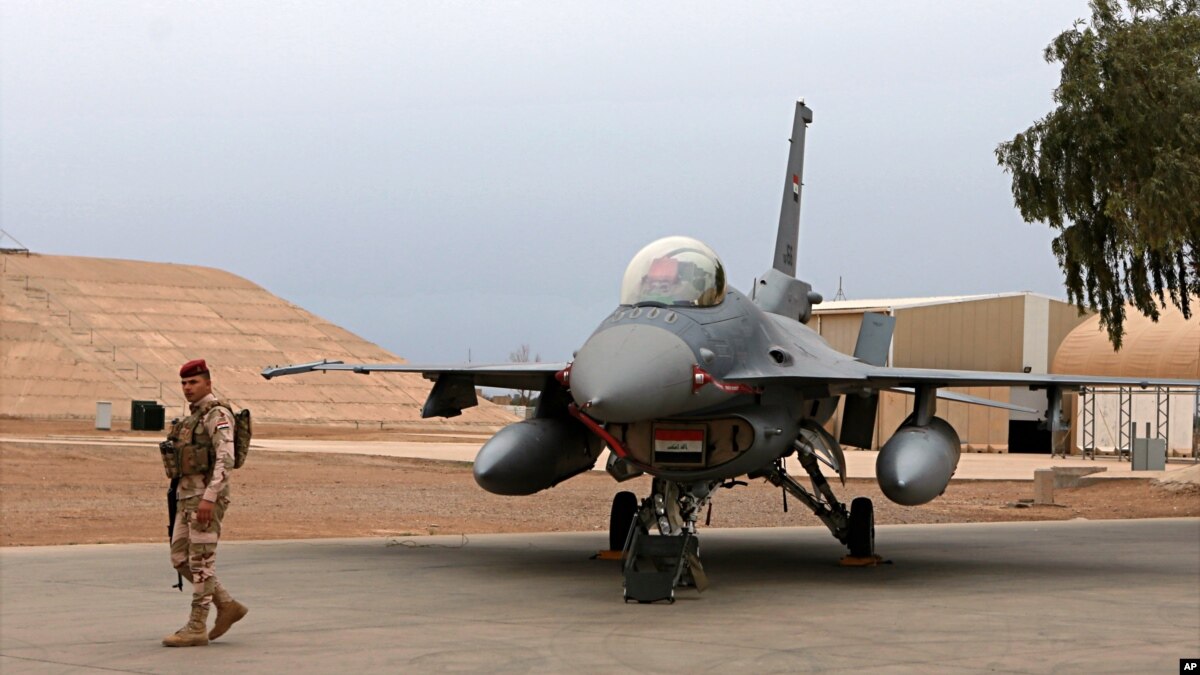
The Iraqi military says its fighter jets struck an Islamic State position inside Syria, a day after the Syrian government authorized its neighbor to target the militants at will.
Iraq's Joint Operations Command says F-16s struck a two-story house Monday in Souseh, close to the border, that was being used as a meeting place for IS leaders.
The Associated Press could not verify the number of casualties.
Iraq has regularly coordinated with the U.S.-led coalition to strike IS positions inside Syria by air and artillery. On Sunday, Syrian President Bashar al-Assad formally invited Iraq to do so, reflecting the changing battlefield in Syria as the U.S. prepares to withdraw its forces.
Emirati Court Upholds 10-year Sentence Against Activist
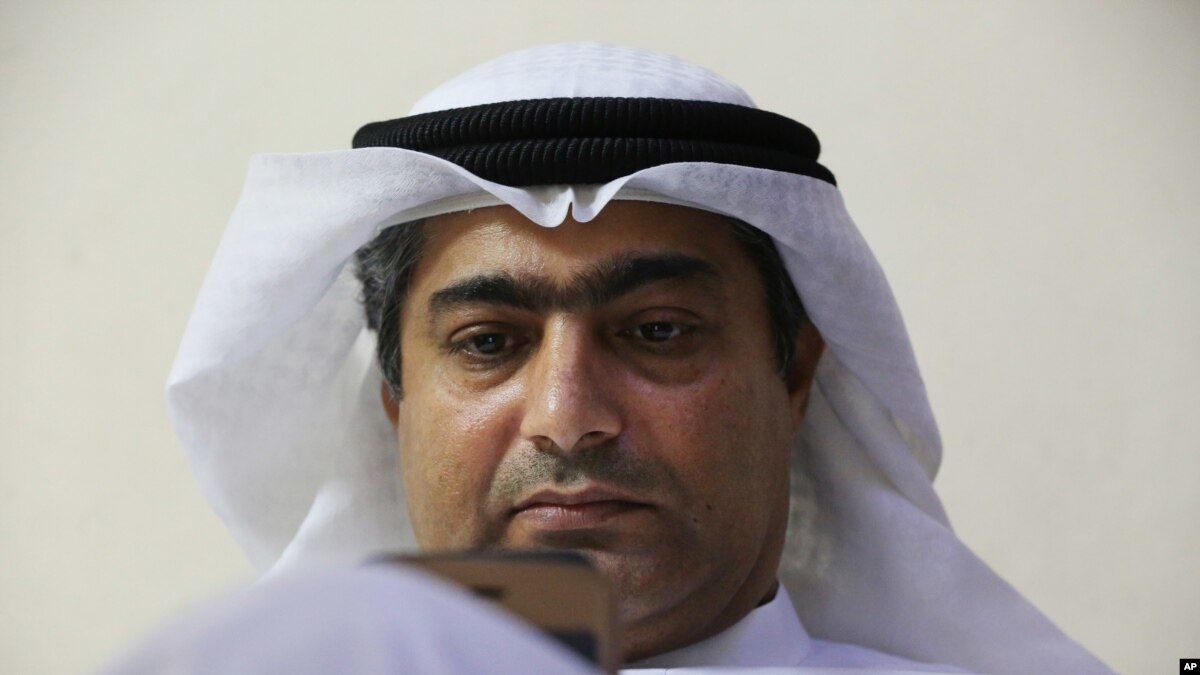
A high court in the United Arab Emirates upheld a 10-year prison sentence of Emirati rights activist Ahmed Mansoor for criticizing the government in social media posts, local media and human rights groups said Monday.
The Dubai-based Gulf News reported that Mansoor's sentencing, which also includes a $272,000 fine, was upheld by a branch of the Federal Supreme Court dealing with state security. His lawyer did not immediately respond to calls by The Associated Press.
Mansoor was convicted of seeking to damage the UAE's reputation and relationship with neighboring states by posting false reports and information.
An electrical engineer with a master's from the University of Colorado Boulder, Mansoor was the recipient of the prestigious Martin Ennals Award for Human Rights Defenders in 2015. He was described as one of the few voices within the UAE who regularly raised concerns on arbitrary detention, torture and issues related to the judiciary. He also wrote about stateless residents in the Gulf, known as Bidoon.
In March 2017, Mansoor was arrested when security forces raided his home in the emirate of Ajman, confiscating computers and phones.
In the weeks leading up to his arrest, he had criticized the imprisonment of other activists in the UAE, including Nasser bin-Ghaith, an academic and economist who was sentenced to 10 years after his criticism of Emirati and Egyptian authorities.
Human Rights Watch previously reported that Mansoor had also used Twitter to draw attention to rights violations committed by the Saudi-led coalition at war in Yemen, of which the UAE is an active member.
Amnesty International's Middle East Research Director, Lynn Maalouf, said the decision to uphold his prison sentence "confirms there is no space for free expression in the United Arab Emirates." The verdict cannot be appealed, she said in a statement.
Trump Defends His Planned Troop Withdrawal from Syria
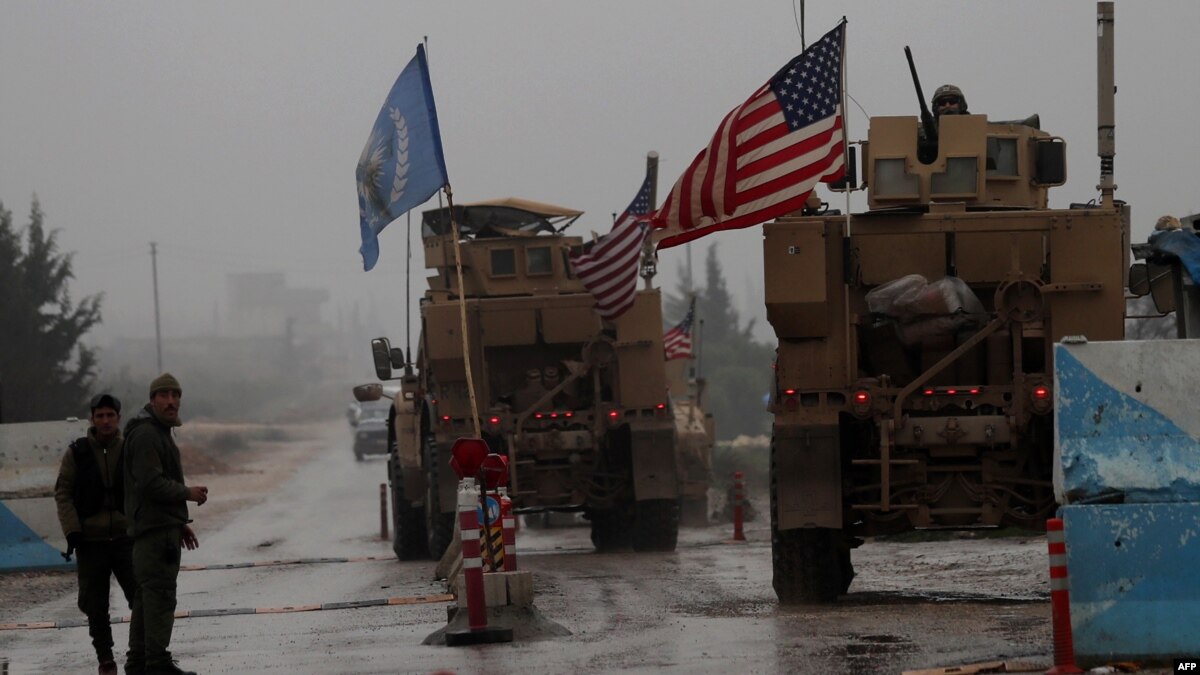
U.S. President Donald Trump on Monday defended his planned withdrawal of all 2,000 American troops from Syria, attacking critics of the action as chronic complainers.
In a string of Twitter remarks, Trump said, "If anybody but Donald Trump did what I did in Syria, which was an ISIS (Islamic State) loaded mess when I became President, they would be a national hero."
He said the Islamic State terrorist group that once claimed Raqqa in northern Syria as the capital of its caliphate, "is mostly gone" from Syria and "we’re slowly sending our troops back home to be with their families, while at the same time fighting ISIS remnants."
Trump stunned U.S. national security aides and lawmakers, Republicans and Democrats alike, by announcing December 19 that he was withdrawing the U.S. troops who had been instrumental in removing most of the jihadist group from northeast Syria and aided Kurdish fighters in their fight against the insurgents.
Critics of the withdrawal said that removing U.S. troops could lead to a resurgence of Islamic State operations.
One critic of the move, Republican Senator Lindsey Graham, normally a Trump loyalist, met with the U.S. leader Sunday and later said the president remains committed to defeating Islamic State. Graham suggested Trump may slow his planned 30-day withdrawal, but the White House has not commented on Graham's interpretation of his talks with Trump.
"I think we're in a pause situation where we are re-evaluating what's the best way to achieve the president's objective of having (other countries) pay more and do more" in the war on terrorism, Graham said.
In his Monday tweets, Trump said, "I campaigned on getting out of Syria and other places. Now when I start getting out the Fake News Media, or some failed Generals who were unable to do the job before I arrived, like to complain about me & my tactics, which are working. Just doing what I said I was going to do! Except the results are FAR BETTER than I ever said they were going to be! I campaigned against the NEVER ENDING WARS, remember!"
Trump contended, "I am the only person in America who could say that, “I’m bringing our great troops back home, with victory,” and get BAD press. It is Fake News and Pundits who have FAILED for years that are doing the complaining. If I stayed in Endless Wars forever, they would still be unhappy!"
Iran's Revolutionary Guards Plan to Upgrade Speed Boats With Stealth Technology
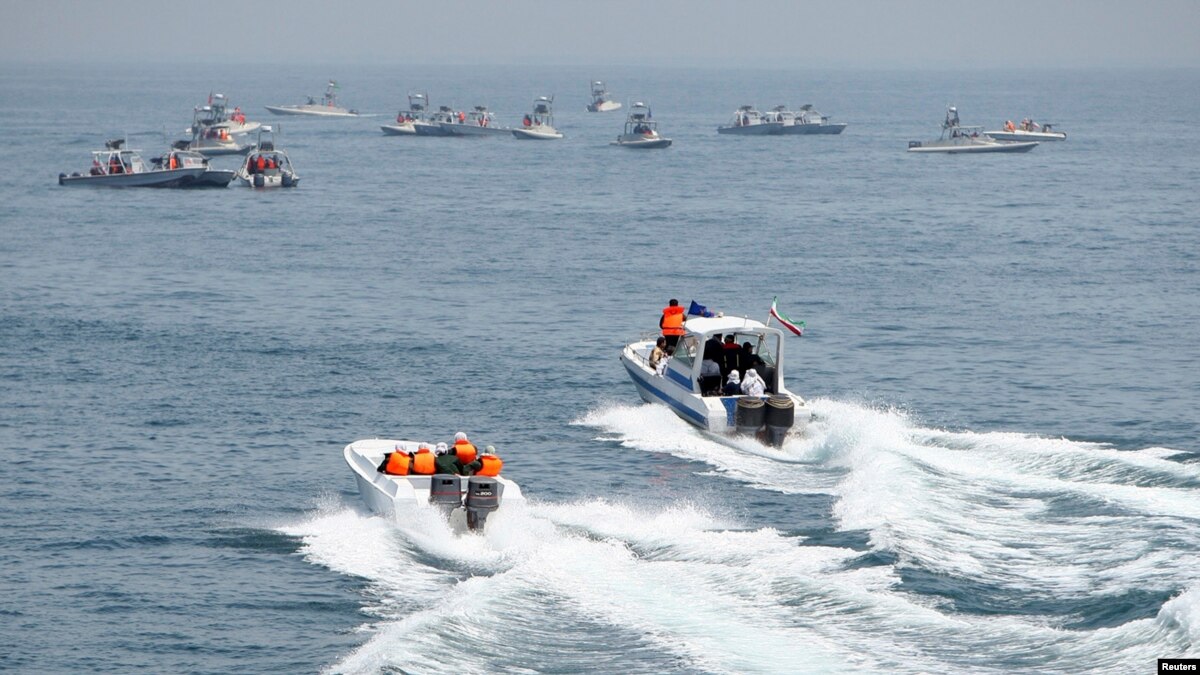
Iran's Revolutionary Guards said on Monday they plan to upgrade their speed boats in the Gulf with radar-evading stealth technology and new missile launchers as tensions rise between Tehran and Washington in the vital oil shipping route.
Ending a long absence of U.S. aircraft carriers in the region, the USS John C. Stennis entered the Gulf last week, and was shadowed by the Revolutionary Guards' speed boats.
There have been periodic confrontations between the Revolutionary Guards vessels and U.S. military in the Gulf, although the number of incidents has dropped in recent months.
"We are trying to increase the agility of the Guards' speed boats and equip them with stealth technology to facilitate their operations," Alireza Tangsiri, the Revolutionary Guards' navy chief, was quoted as saying by the state news agency IRNA.
Tangsiri also said the speed boats will be equipped with new missiles, and their speed will reach 80 knots per hour.
He did not elaborate on whether Iran had already mastered these technologies or if they were still in the study phase.
Iran says it has been developing its own stealth technology for fighter jets and vessels, but the prototypes it has unveiled in recent years have mostly been met with derision by defense experts.
The Revolutionary Guards last week launched war games in the Gulf, where third of the world’s sea-borne oil passes through, and warned that its forces were ready to respond to any hostile U.S. action.
A U.S.-Iranian war of words has escalated since U.S. President Donald Trump took Washington out of a world powers’ nuclear deal with Iran in May, and reimposed sanctions on its banking and energy sectors.
Iran has warned that if it cannot sell its oil due to U.S. pressure, then no other regional country will be allowed to do so either, threatening to block the Strait of Hormuz in the Gulf.
The Guards’ naval arm lacks a strong conventional fleet.
However, it has many speed boats and portable anti-ship missile launchers, and can lay mines.
Syria Deaths at Wartime Low in 2018 as Assad Made Gains
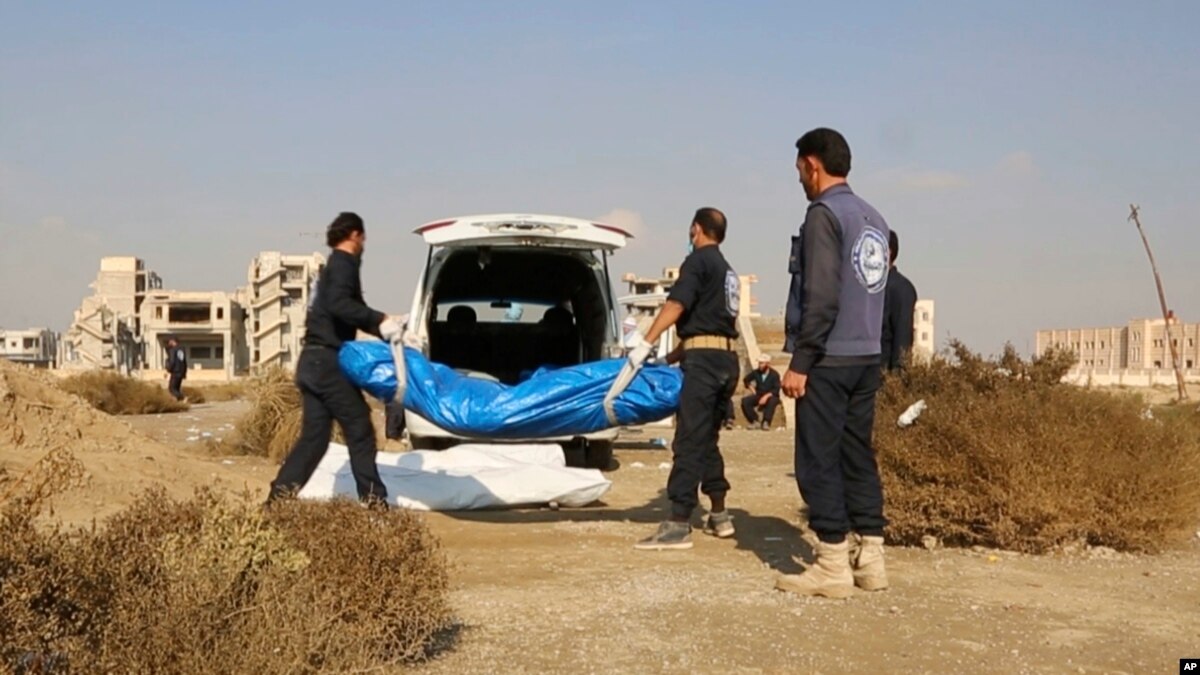
A group that closely tracks Syria's war says nearly 20,000 people were killed in 2018, the lowest annual death toll of the nearly eight-year war.
Fighting died down in much of the country after President Bashar al-Assad's forces defeated rebels in bloody battles around the capital and southern Syria, bringing just over 60 percent of the country back under his control. Of the 20,000, only 6,500 were civilians.
The Syrian Observatory for Human Rights announced the yearly death toll Monday. It says more than 33,400 people, including 10,000 civilians, were killed in 2017.
The conflict began in 2011 as a peaceful uprising against Assad but soon escalated into a devastating civil war that has drawn in foreign powers. The conflict is believed to have killed more than 500,000 people.
Syria Deaths at Wartime Low in 2018 as Assad Made Gains

A group that closely tracks Syria's war says nearly 20,000 people were killed in 2018, the lowest annual death toll of the nearly eight-year war.
Fighting died down in much of the country after President Bashar al-Assad's forces defeated rebels in bloody battles around the capital and southern Syria, bringing just over 60 percent of the country back under his control. Of the 20,000, only 6,500 were civilians.
The Syrian Observatory for Human Rights announced the yearly death toll Monday. It says more than 33,400 people, including 10,000 civilians, were killed in 2017.
The conflict began in 2011 as a peaceful uprising against Assad but soon escalated into a devastating civil war that has drawn in foreign powers. The conflict is believed to have killed more than 500,000 people.
Palestinian Court Jails US-Palestinian for Life for Jerusalem Land Sale
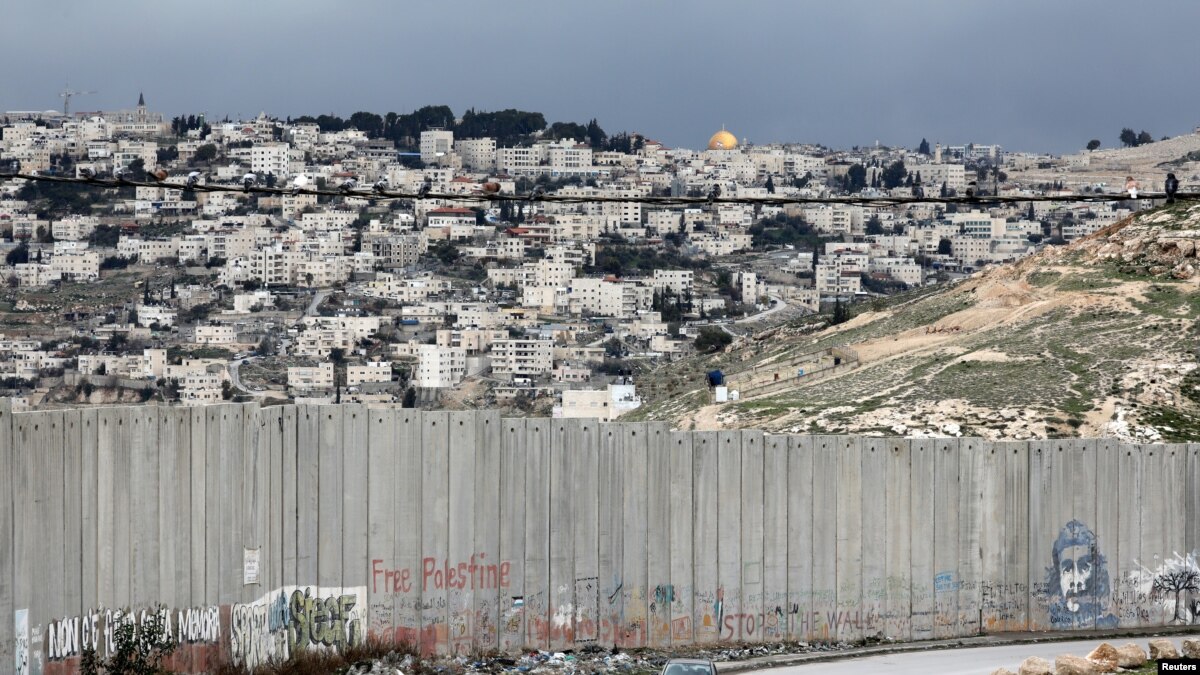
A Palestinian court sentenced an American-Palestinian on Monday to life imprisonment for violating a ban on selling land to Israelis, judiciary officials said.
The U.S. ambassador to Israel, David Friedman, called in November for dual national Issam Akel to be released, saying his suspected crime was "selling land to a Jew" and his incarceration violated American values.
Akel was accused of attempting to sell a property in Israeli-occupied East Jerusalem without the permission of his business partners or Palestinian authorities. Palestinian officials have not publicly identified the intended buyer.
The Higher Offenses Court in Ramallah, in the occupied West Bank, convicted Akel of "attempting to sever parts of Palestinian land and annex it to a foreign state," the judiciary media office said.
"In light of the conviction, the court handed down a life sentence with hard labor," it said. Akel can appeal, a judiciary official said.
The U.S. Embassy in Jerusalem declined to comment. Akel's family, which denied the allegations against him, said it was unaware of the verdict or sentence.
Akel was detained on Oct. 10 in Ramallah, an Israeli security official said.
Palestinian law bars selling land to "a hostile state or any of its citizens." It requires the permission of the Palestinian Authority, which exercises limited self-rule in the West Bank, for all land sales in East Jerusalem.
Israel captured the eastern part of Jerusalem in the 1967 Middle East war and annexed it in a move that has not won international recognition.
Land sales in the Palestinian territories, including East Jerusalem, are fraught for Palestinians, who see Israeli efforts to buy up land as part of a plot to cement control of occupied areas they seek for a state of their own.
Around 500,000 Israelis live in settlements in East Jerusalem and the West Bank, which most countries consider a violation of international law against settling occupied land.
Iranian Police Disperse Protest Over Deadly Bus Crash
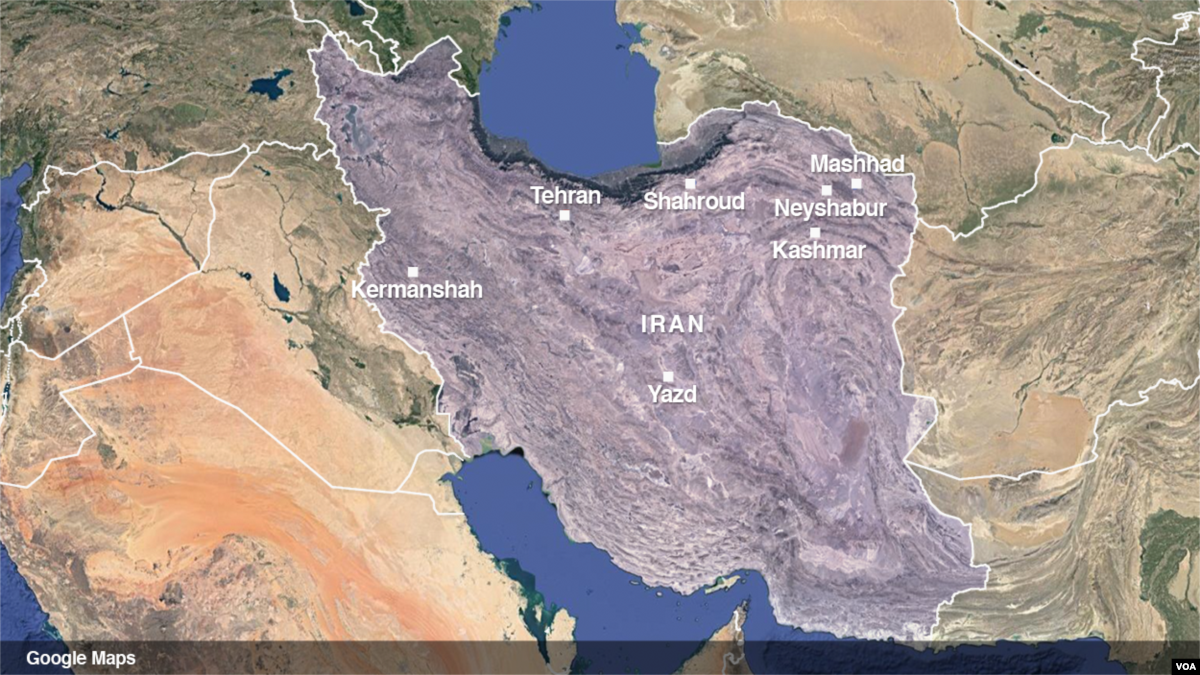
Iran deployed scores of policemen to disperse a brief protest in downtown Tehran over a bus crash last week that killed 10 people, including eight students.
Monday's rally — which saw about 200 protesters gather — was the third consecutive day of demonstrations over the accident. Earlier protests took place inside the Azad University campus in northern Tehran.
Protesters demand the dean and other university officials resign.
Authorities have promised to investigate the crash, which took place inside campus grounds. Five people were reportedly arrested.
Iran sees a high death toll — about 17,000 killed every year — in traffic accidents. The high toll is blamed on disregard of safety measures and outdated cars.
Young Libyan Women Play for Equal Rights on the Soccer Field
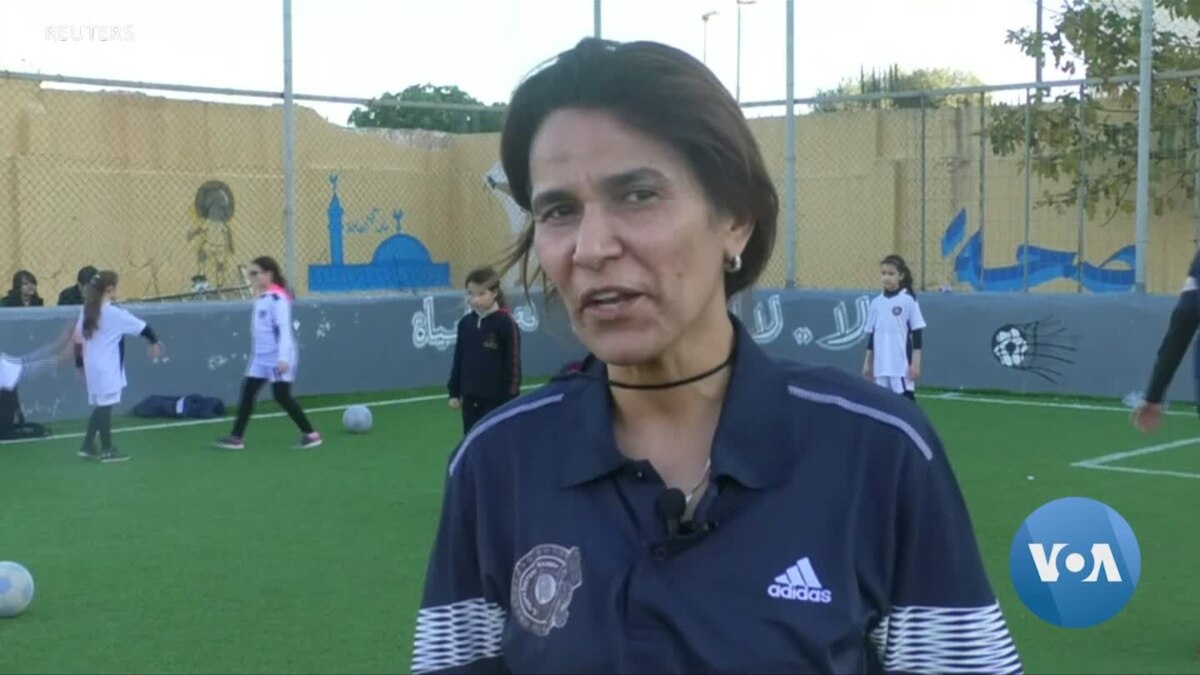
Young women looking to play the world’s most-popular sport have a place all their own in Libya. An all-girls soccer academy in the capital looks to break societal norms in the Muslim majority country that frown upon women wearing shorts or competing on the same fields as men. But it is not without criticism that coaches turn constructive. Arash Arabasadi reports.
Read More Young Libyan Women Play for Equal Rights on the Soccer Field : http://bit.ly/2AqOUNzBahrain Court Upholds Conviction Against Prominent Activist
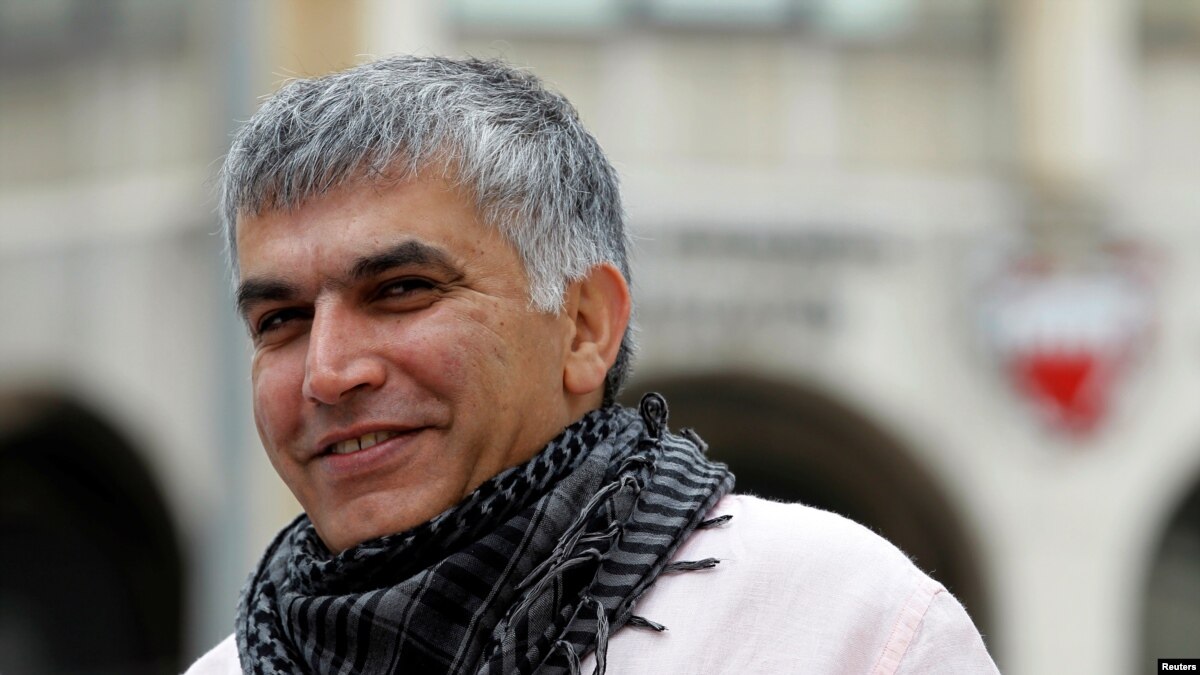
A court in Bahrain has upheld a five-year prison sentence against prominent activist Nabeel Rajab over tweets alleging torture at a prison in his country and criticism of the Saudi-led war in Yemen.
Amnesty International says Bahrain's Court of Cassation upheld the conviction on Thursday on charges of "spreading false rumors in time of war," "insulting public authorities" and "insulting a foreign country."
Rajab has been detained since June 2016 as part of a wide crackdown on dissent in Bahrain, a small island-nation off the Saudi coast that's home to the U.S. Navy's 5th Fleet.
Rajab was a major figure in the mostly Shiite-led protests in 2011 demanding greater rights from the Sunni-ruled monarchy. He's also serving a two-year sentence over television interviews he gave that included criticisms of Bahrain.
Afghan Taliban Hold Talks with Iranian Official in Tehran
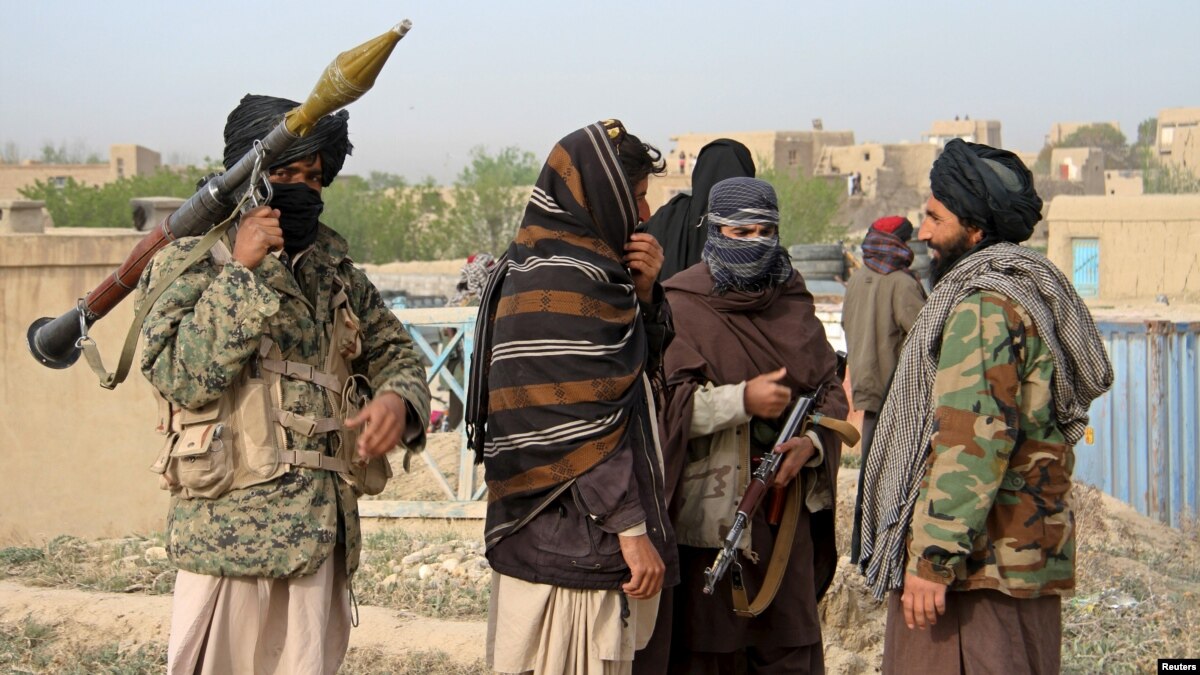
Iran says a delegation of the Taliban has discussed efforts to bring peace and end Afghanistan's 17-year war during a rare visit to Tehran.
Foreign Ministry spokesman Bahram Ghasemi says the Taliban delegation arrived on Sunday and met with Iran's deputy foreign minister, Abbas Araghchi.
Ghasemi says they discussed "security issues aimed at driving the peace process in Afghanistan.'' He says the Afghan government was aware of the talks.
The talks were not the first between the Taliban and Iranian officials. Ali Shamkhani of Iran's Supreme National Security Council confirmed last week in Kabul that such talks have taken place in the past and would continue.
The Taliban have recently held talks in several regional countries amid U.S. plans to withdraw up to half the 14,000 American troops from Afghanistan.
Sunday, December 30, 2018
Journalist Group: 94 Slayings of Media Staff in 2018
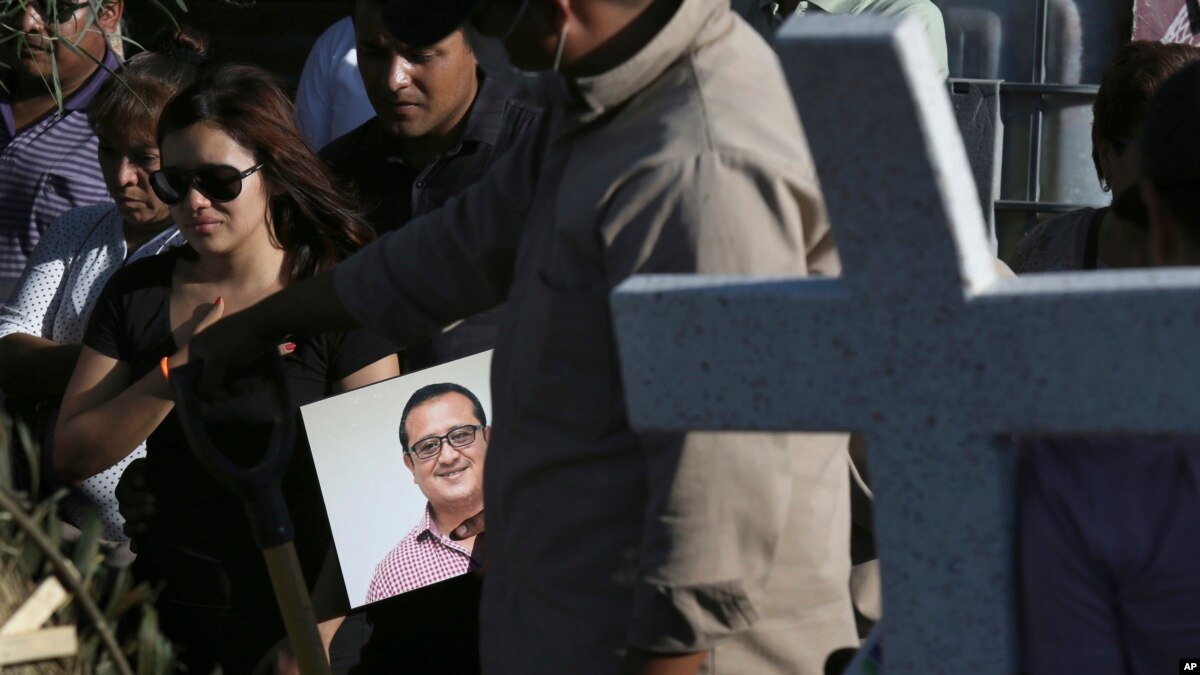
An international trade association says on-the-job slayings of journalists and news media staff rose again in 2018 following an overall decline during the past half-dozen years.
The International Federation of Journalists said in an annual report set for release Monday that 94 journalists and media workers died in targeted killings, bomb attacks and conflict crossfire this year, 12 more than in 2017.
Before the declines seen in five of the past six years, 121 people working for news organizations were slain in 2012. Since the federation started its annual count in 1990, the year with the most work-related killings, 155, was 2006.
The deadliest country for people who work in the news media this year was Afghanistan, where 16 of the killings occurred. Mexico was next, with 11. Yemen had nine media slayings and Syria eight in 2018.
Beyond the tragedy of lives lost, such killings affect the pursuit of truth and sharing of information in communities and countries where they happen, the president of the International Federation of Journalists said.
“Journalists are targeted because they are witnesses,” the group's president, Philippe Leruth, told The Associated Press. “And the result of this, when a journalist or many journalists are killed in a country, you see an increase of self-censorship.”
Iraq, where 309 media professionals were killed over the past quarter-century, long topped the federation's annual list. The federation identified a photojournalist as the one victim in the country this year.
While 2018 brought a worldwide increase, the total remained in the double digits for a second year running. The total of 155 in.
The IFJ connects some 600,000 media professionals from 187 trade unions and associations in more than 140 countries. The group said the new report showed that journalists face dangers apart from the risks of reporting from war zones and covering extremist movements.
“There were other factors, such as the increasing intolerance to independent reporting, populism, rampant corruption and crime, as well as the breakdown of law and order,” the Brussels-based group said in a statement.
Suddenly high on the list, in sixth place, was the United States with five killings. On June 28, a gunman in Annapolis, Maryland, opened fire in the newsroom of the Capital Gazette newspaper and fatally shot four journalists and a sales associate. The man had threatened the newspaper after losing a defamation lawsuit.
The Oct. 2 slaying of Saudi writer Jamal Khashoggi, a columnist for The Washington Post who lived in self-imposed exile in the United States, had worldwide impact. He went to the Saudi Consulate in Istanbul to formalize a divorce so he could marry his Turkish fiance, but instead was strangled and dismembered there - allegedly by Saudi agents.
Khashoggi wrote critically of Saudi Arabia's royal regime, and the alleged involvement of Saudi Crown Prince Mohammed bin Salman in the journalist's slaying has put the governments of other countries under pressure to sever economic and political ties.
“Jamal Khashoggi was a very well-known figure, but you know, the most shocking statistic is that we know that nine of 10 journalist murders remain unpunished in the world,” Leruth said.
Syria's Assad Authorizes Iraqi Forces to Strike IS in Syria
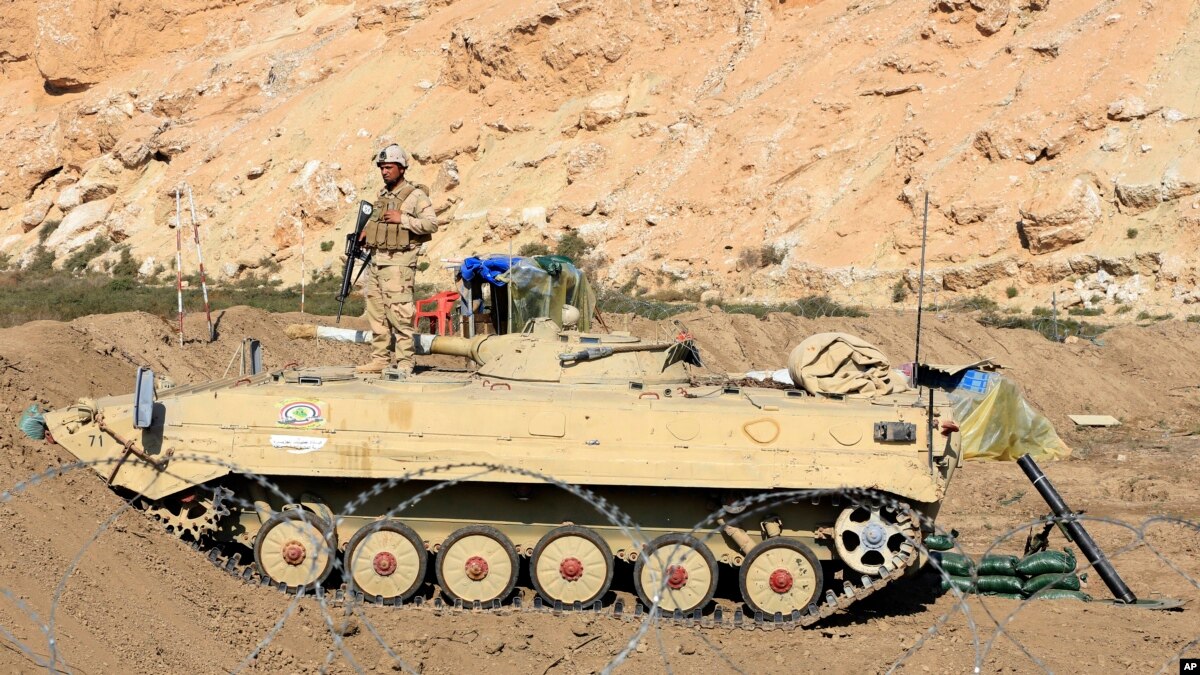
Syria's state news agency says President Bashar Assad has authorized Iraqi forces to attack the Islamic State group inside Syria without waiting for permission from authorities in Damascus.
Sunday's announcement highlights the close relations between the two neighboring Arab countries. IS once controlled large parts of both countries when it declared a caliphate in 2014.
Iraqi warplanes and artillery have in the past pounded IS positions inside Syria after getting the green light from Syrian authorities.
The extremists have been defeated in Iraq but still hold a small area in Syria.
On Saturday Assad received a letter from Iraq's Prime Minister Abdul-Mahdi calling for both countries' coordination in "fighting terrorism."
President Donald Trump announced earlier this month that the U.S. will withdraw all of its 2,000 forces in Syria.
UN Calls out Yemen's Houthi Rebels over Peace Gestures
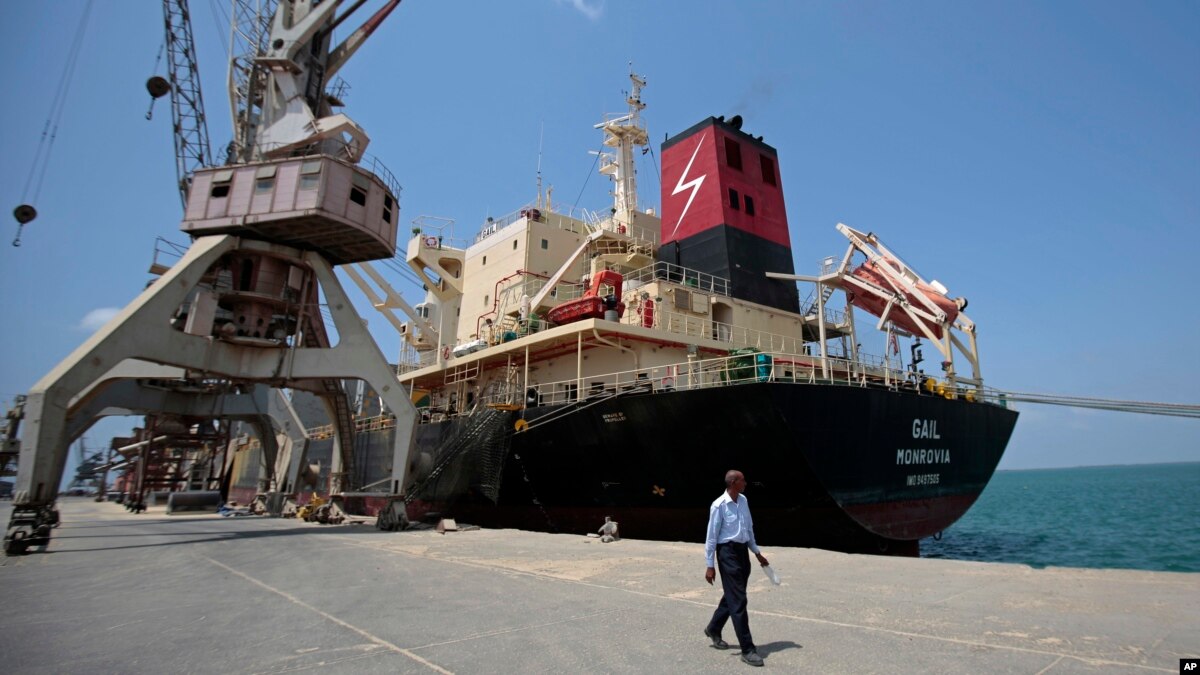
The United Nations has cast doubt on the claims by Yemen's Shi'ite rebels to have withdrawn from the port of Hodeida, saying such steps can only be credible if all other parties can verify them.
Stephane Dujarric, spokesman for U.N. Secretary-General Antonio Guterres, said the rebels, known as Houthis, also failed to honor an agreement to open a "humanitarian" corridor between Hodeida and the capital, Sana'a, to deliver assistance. Both cities are under rebel control.
He said retired Dutch Maj. Gen. Patrick Cammaert, who heads a U.N. team of monitors in Hodeida, has expressed his "disappointment at their missed opportunity to build confidence between the parties" in a meeting with rebel representatives about their failure to open the corridor.
The confidence-building measures agreed in Sweden this month, which include an exchange of prisoners, could pave the way for a political settlement of Yemen's 4-year-old war, which pits the Iran-aligned Houthis against the government and a Saudi-led coalition.
The two sides have observed a cease-fire in Hodeida for nearly two weeks, ending months of fierce fighting for control of the city. Some 70 percent of Yemen's imports come through Hodeida, and the Sweden deal is designed in part to facilitate the delivery of relief supplies to pull Yemen back from the brink of famine.
The fighting in Yemen, the poorest Arab nation, has killed tens of thousands of people and driven millions to hunger. The U.N. calls it the world's worst humanitarian disaster.
The Houthis said Saturday they handed over control of the Hodeida port to the coast guard under the Sweden agreement, but the government denied this, saying it was a ploy by the rebels to maintain control. Government officials said the Houthi-appointed commander of the coast guard in Hodeida is a longtime rebel commander who had never served in the coast guard before.
The estimated 300 members of Hodeida's coast guard had not reported for work in months and have been replaced by personnel loyal to the Houthis, said the officials, who spoke on condition of anonymity because they were not authorized to brief the media.
In his meeting with the rebel representatives, Cammaert welcomed the Houthis' efforts to start implementation of the Sweden agreement, but noted that this must be "concurrent," said Dujarric, the U.N. spokesman. The Dutch envoy also emphasized that any redeployment would only be credible if all parties and the U.N. were able to observe and verify it.
Cammaert planned to meet Tuesday with representatives of both sides to discuss "the redeployment plans of the parties and the liaison, monitoring and coordination mechanism that will be required to monitor the ceasefire and ensure that credible redeployment is achieved," according to Dujarric.
Saturday, December 29, 2018
2 Israeli Ministers to Form New Party Ahead of Elections
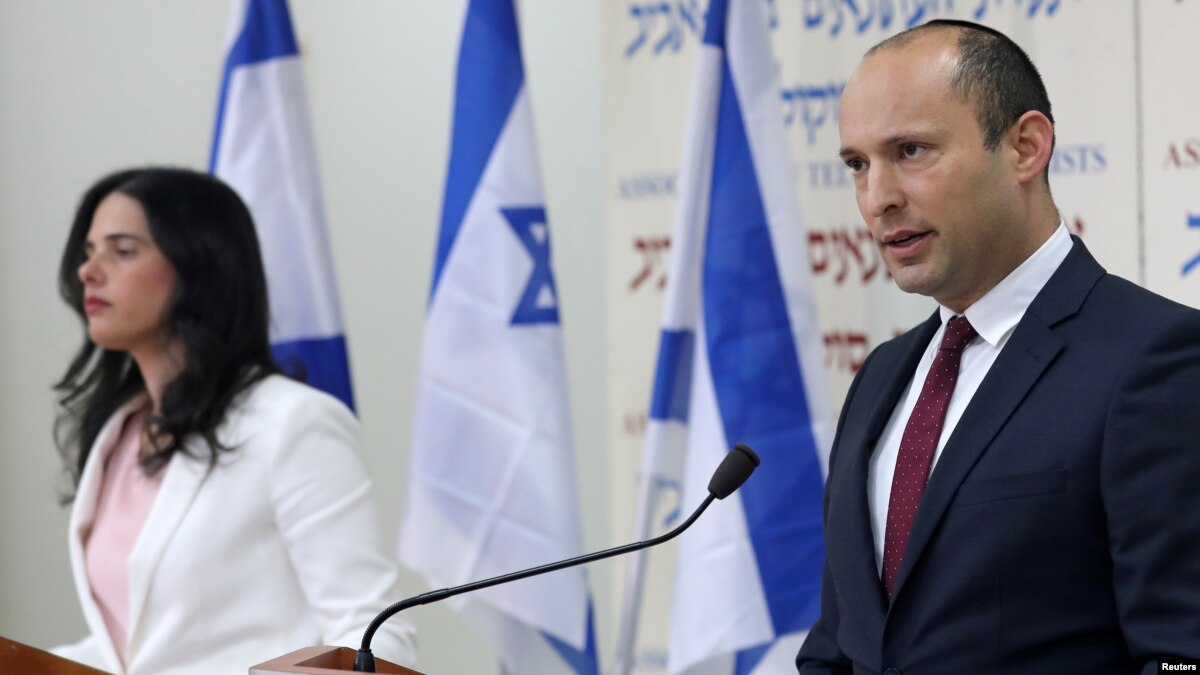
Two senior Israeli cabinet ministers say they are forming a new party to run in April elections.
Education Minister Naftali Bennett and Justice Minister Ayelet Shaked announced Saturday that they were leaving the Jewish Home party.
The Jewish Home is a hard-line nationalist party that is especially popular with religious voters and West Bank settlers.
Bennett and Shaked said that their new movement, The New Right, will have a broader appeal to both religious and secular voters.
Bennett has been the leader of the Jewish Home since 2012.
2-Year-old Yemeni Boy Whose Mom Sued US to see Him Has Died

The 2-year-old son of a Yemeni woman who sued the Trump administration to let her into the country to be with the ailing boy has died, the Council on American-Islamic Relations announced.
Abdullah Hassan died Friday in UCSF Benioff Children’s Hospital in Oakland, where his father Ali Hassan brought him in the fall to get treatment for a genetic brain disorder.
Ali Hassan is a U.S. citizen who lives in Stockton, California. He and his wife Shaima Swileh moved to Egypt after marrying in war-torn Yemen in 2016. Swileh is not an American citizen and remained in Egypt while fighting for a visa.
“We are heartbroken. We had to say goodbye to our baby, the light of our lives,” Ali Hassan was quoted as saying in the statement published by the council.
Swileh held her son for the first time in the hospital 10 days ago.
A funeral is scheduled for Saturday.
Swileh had been trying to get a visa since 2017, so the family could move to the United States.
Citizens from Yemen and four other mostly Muslim countries, along with North Korea and Venezuela, are restricted from coming to the United States under President Donald Trump’ s travel ban.
When the boy’s health worsened, the father went ahead to California in October to get their son help, and Swileh remained in Egypt hoping for a visa. As the couple fought for a waiver, doctors put Abdullah on life support.
“My wife is calling me every day wanting to kiss and hold her son for the one last time,” said Ali Hassan, choking up at a news conference earlier this month.
He started losing hope and was considering pulling his son off life support to end his suffering. But then a hospital social worker reached out to the Council on American-Islamic Relations, which sued on Dec. 16, said Basim Elkarra, executive director of the group in Sacramento.
The State Department granted Swileh a waiver the next day.
“With their courage, this family has inspired our nation to confront the realities of Donald Trump’s Muslim Ban,” said Saad Sweilem, a lawyer with the council who represents the family. “In his short life, Abdullah has been a guiding light for all of us in the fight against xenophobia and family separation.”
Houthi Rebels Begin Withdrawing From Yemeni Port of Hodeida, UN Official Says
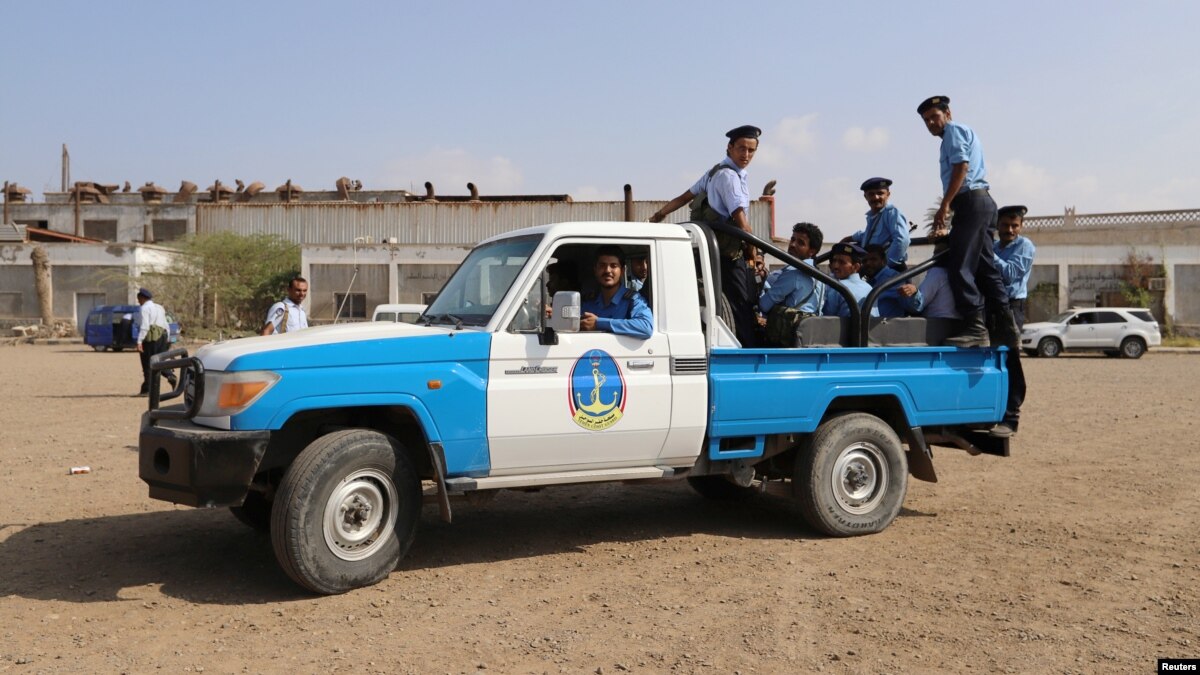
Yemen's Houthi rebels have started withdrawing from the port of Hodeida, a U.N. official said Saturday.
Handing over control of Hodeida, a key lifeline for Yemen, was included in a U.N.-sponsored agreement signed in Sweden earlier this month.
The withdrawal is one in a series of measures in the agreement that could lead to an end of Yemen's 4-year-old civil war. During the conflict, the Iranian-aligned Houthis have clashed with a Yemeni government backed by a Saudi-led coalition.
The pullout began after the two sides observed a week-long cease-fire in Hodeida, a point of entry for aid to about 14 million Yemenis the U.N. says are on the verge of famine. The U.N. adds the war's affect on civilians has created the world's worst humanitarian disaster.
A U.N. team led by retired Dutch Major General Patrick Cammaert arrived in the city last week to oversee the cease-fire.
The agreement, the first significant breakthrough in peace efforts in five years, also calls for the Houthi's to withdraw from the port of Salif and Rass Issa.
It is still unclear how far the rebels will withdraw and who will control the ports.
Friday, December 28, 2018
Revered Israeli Writer Amos Oz Dies at 79
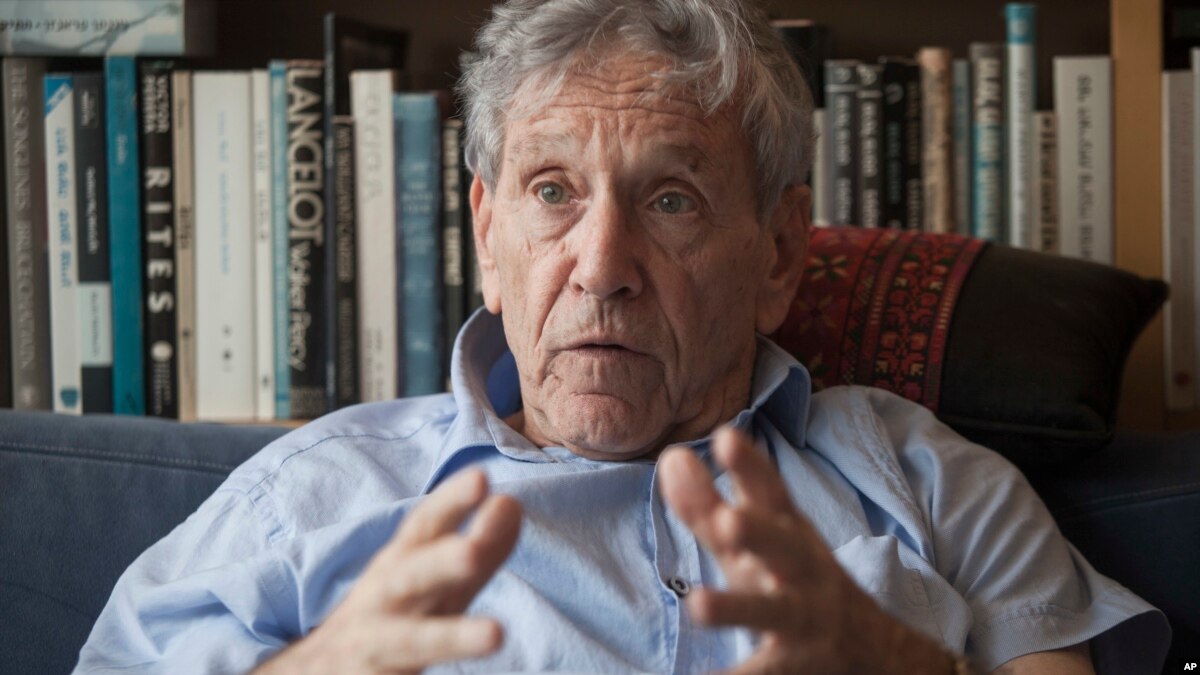
Renowned Israeli writer Amos Oz, a passionate peace advocate whose stirring memoir A Tale of Love and Darkness became a worldwide bestseller, died Friday at age 79, his daughter said.
Fania Oz-Salzberger said on Twitter that her father had died and offered thanks to "those who loved him."
"My beloved father, Amos Oz, a wonderful family man, an author, a man of peace and moderation, died today peacefully after a short battle with cancer," she wrote.
Tributes poured in for Oz, including from Israeli foreign ministry spokesman Emmanuel Nahshon, who called his death "a loss for us all and for the world."
While Oz's writing is widely acclaimed, he is perhaps equally known as one of the earliest and most forceful critics of Israel's occupation of Palestinian lands captured in the Six-Day War of 1967.
In recent years, Oz spoke out against the policies of Prime Minister Benjamin Netanyahu, shunning official Israeli functions abroad in protest at what he called the "growing extremism" of his country's government.
Netanyahu on Friday celebrated Oz as "among the greatest writers from the state of Israel."
"Despite our diverging views on numerous issues, I have deeply appreciated his contribution to the Hebrew language and the revival of Hebrew literature," the premier said in a statement released by his office.
Oz was described as a "literary great" by Israel's President Reuven Rivlin.
"A tale of love and light and henceforth, great darkness," he wrote on Twitter.
Saudi Women Step on Face Veils in Social Media Protest
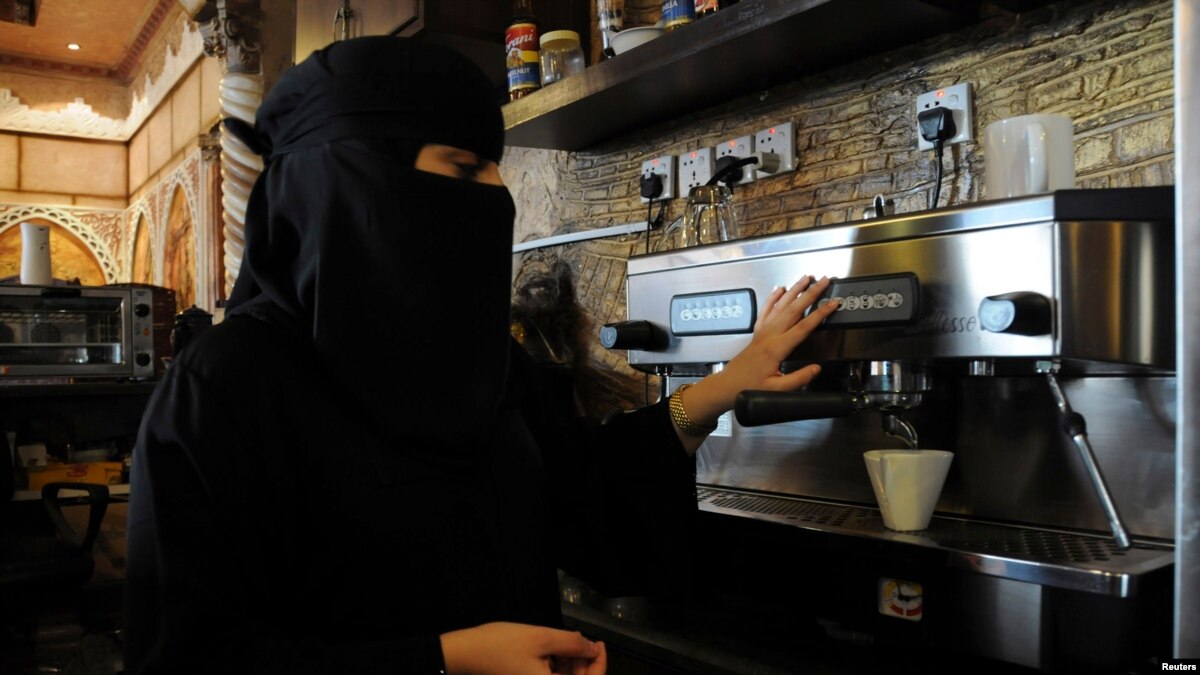
Saudi women are stepping on the face veils some are made to wear in the conservative kingdom and posting their stories on social media with the hashtag #NiqabUnderMyFoot.
The campaign marks the latest protest against strict dress codes for women in Saudi Arabia, who are required to wear abayas — loose, all-covering robes — in public and in most of the country to cover their hair and faces.
Women took to Twitter with stories of being forced to wear the face veil, using the hashtag. Some posted photos of themselves stepping on the garment in protest.
"When I decided to take off my niqab my mother's reaction was to tell me that she would never forgive me," said one. "I stood by my decision and endured months of emotional blackmail and verbal abuse on her part. It wasn't a choice for me and it isn't for many girls in my country."
The campaign attracted criticism, with some saying it was disrespectful to women who chose to wear the niqab.
"You don't want to wear it, that's your choice, but you should also respect those who wear it. Your hashtag in Arabic (#NiqabUnderMyFoot) is very disrespectful to those who wear it by their will as religious devotion," tweeted one.
It is not the first time Saudi women have protested on social media against religious dress. Last month women wore their abayas inside out in protest.
Saudi Arabia has no written legal code to go with the texts making up Sharia — the Islamic law that effectively governs the kingdom — but police and the judiciary have long enforced a strict dress code.
Crown Prince Mohammed bin Salman said in March that women only needed to dress modestly and were not required to wear abayas. But Saudi women say that in practice nothing has changed, and many are demanding more freedom.
Saudi women have started wearing more colorful abayas in recent years, the light blues and pinks in stark contrast with the traditional black. Open abayas over long skirts or jeans are also becoming more common in some parts of the country.
2 Dead After Bomb Hits Tourist Bus in Egypt
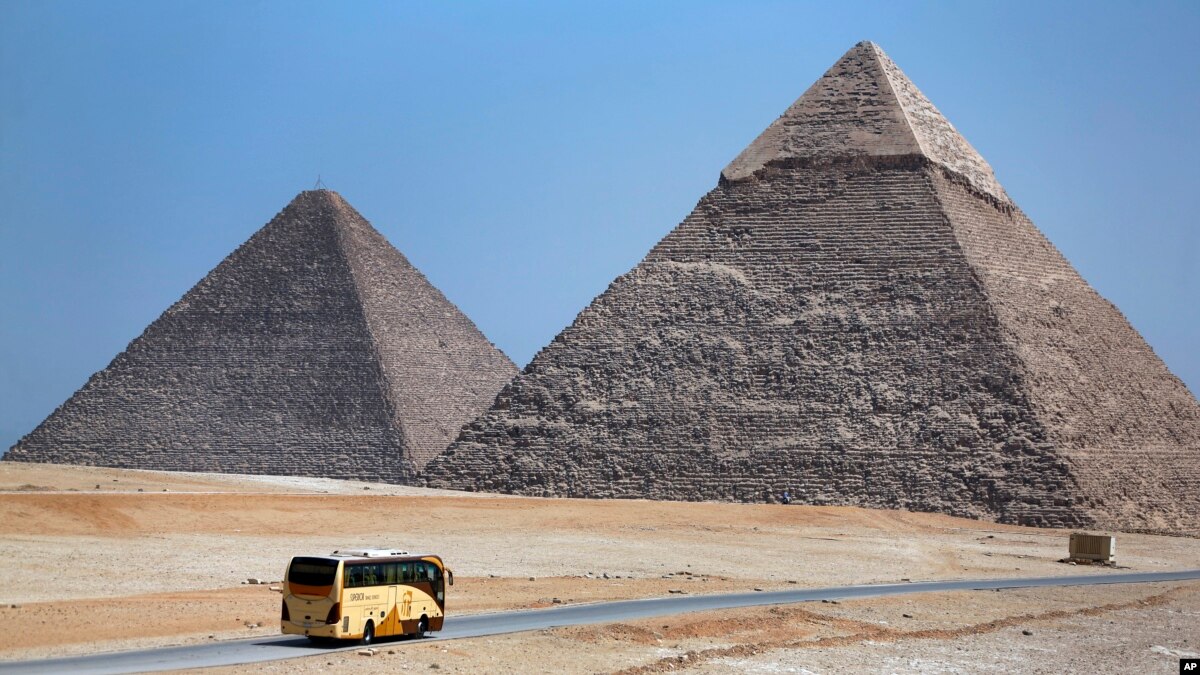
Egyptian security officials say a roadside bomb has hit a tourist bus in an area near the Giza Pyramids, killing at least two people and wounding 10 others.
The officials said the bus was traveling Friday in the Marioutiyah area near the pyramids when the roadside bomb went off.
There was no immediate word on the nationalities of the tourists onboard.
The officials spoke on condition of anonymity because they were not authorized to brief the media.
Egypt has battled Islamic militants for years in the Sinai Peninsula in an insurgency that has occasionally spelt over to the mainland, hitting minority Christians or tourists. However, this is the first attack to target foreign tourists in almost two years.
Syrian Government Forces Move Into Manbij
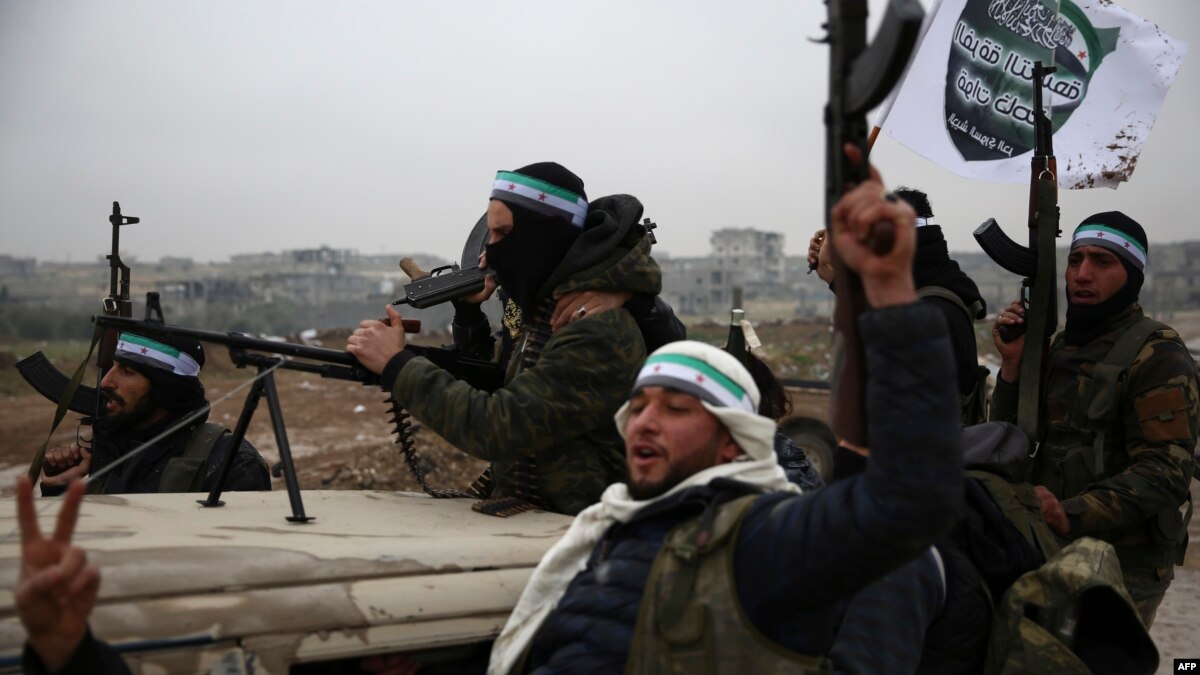
Syrian authorities said in a statement Friday that government forces have entered key areas of the northeastern city of Manbij in Aleppo Governorate.
Syrian army said it “guarantees full security for all Syrian citizens and others present” in the city.
The Syrian Kurdish People’s Protection Units (YPG), the main Syrian Kurdish militia called on the government of President Bashar al-Assad Friday to take control of Manbij to protect it against the threat of Turkish attacks.
“So we invite the Syrian government which we belong to ... to send its armed forces to take over these positions and protect Manbij in the face of Turkish threats,” the YPG said in a statement.
WATCH: US Withdrawal From Syria Prompts Calls for Arabs to Embrace Damascus
Russia immediately welcomed the return of Manbij to Syrian government control, calling it “a positive trend.”
The YPG appeal came after a surprise announcement by U.S. President Donald Trump of a full troop withdrawal from Syria.
The YPG has been supported by U.S., but Turkey regards it as a terrorist group and has vowed to crush it.
US Withdrawal From Syria Prompts Calls for Arabs to Embrace Damascus
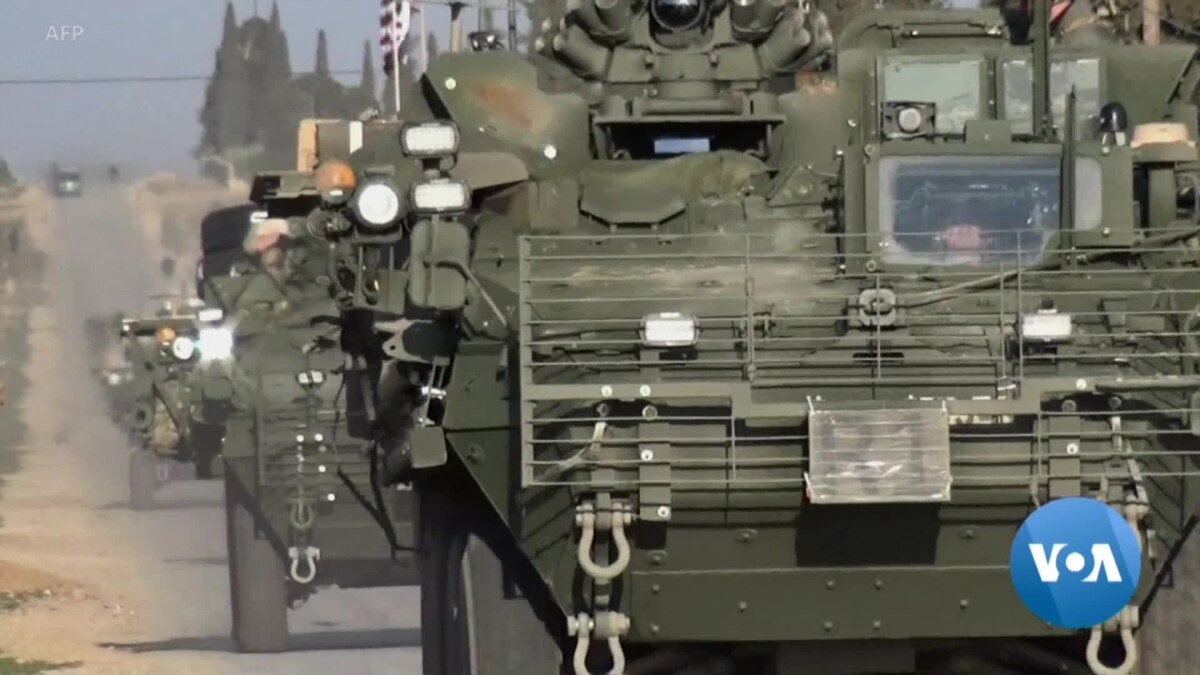
The United Arab Emirates has reopened an embassy in Damascus after seven years of absence from Syria's capital. But the prospects for peace remain elusive in the country ravaged by almost eight years of civil war and terrorism, and increasingly affected by interference from abroad. VOA's Zlatica Hoke reports on the latest developments in the Syrian conflict.
Read More US Withdrawal From Syria Prompts Calls for Arabs to Embrace Damascus : http://bit.ly/2QYk9d5Thursday, December 27, 2018
Israel Vows to Block Palestinian Bid to Become Full UN Member
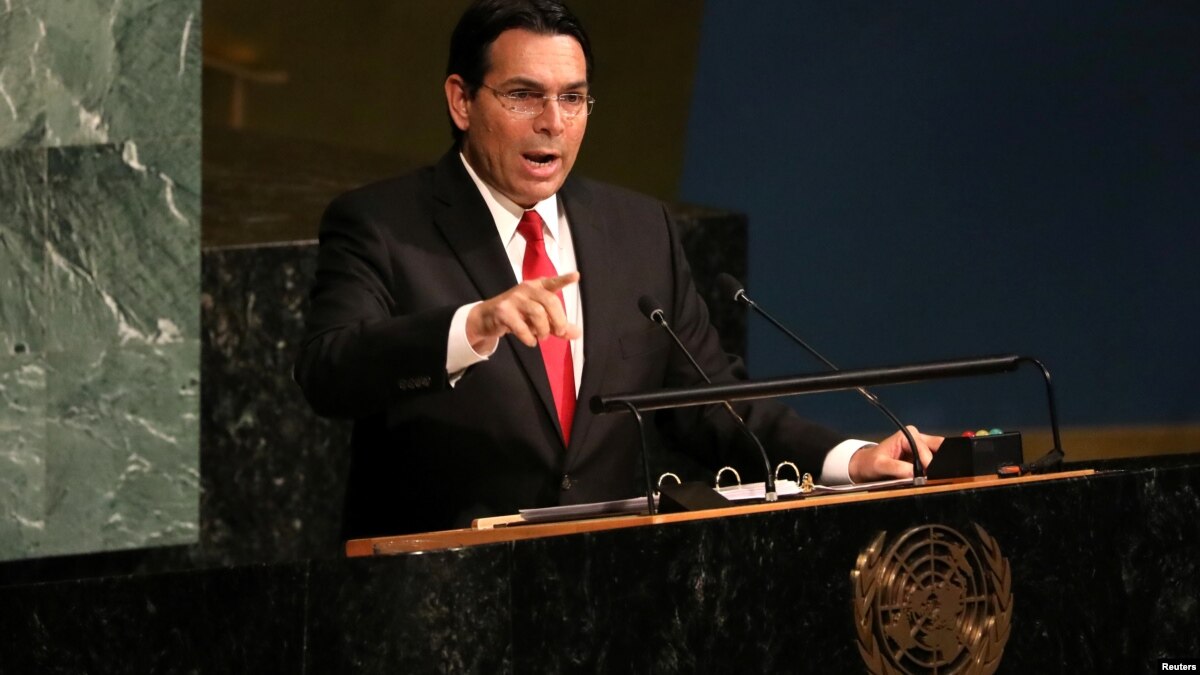
Israel has vowed to work with the United States to block a bid by the Palestinians for full membership in the United Nations, a move that would confer international recognition of Palestinian statehood.
Palestinian Authority Foreign Minister Riyad al-Maliki said Wednesday that he will submit a request next month to the Security Council for full UN membership, according to the official Wafa Palestinian news agency.
"We are preparing to stop the initiative," said Israel's UN ambassador Danny Danon in a statement. "The Palestinians pay terrorists and encourage violence yet seek to become a member state of the United Nations."
Danon accused Palestinian leaders of engaging in "destructive policies that have encouraged recent terror attacks" and said he was gearing up to block the initiative "in cooperation with the United States delegation."
Any move by the Palestinians to seek full UN membership will face a veto from the United States at the Security Council, diplomats said.
Under UN rules the General Assembly must approve any request to become a UN member-state, but it must first be submitted to the Security Council.
To win the council's approval, the Palestinians would have to secure nine votes from the 15 members and no veto from any of the five permanent members: Britain, France, China, Russia and the United States.
The Palestinian foreign minister said he plans to travel to New York next month to personally submit the request. It remains unclear whether the application would quickly be put to a vote at the Security Council.
New council members back Palestine
UN diplomats said the Palestinian move to seek full UN membership comes as South Africa and Indonesia, two strong supporters of the Palestinians, are set to take their seats as non-permanent Security Council members.
The council is tentatively scheduled to hold its monthly meeting on the Israeli-Palestinian conflict on January 22.
The Palestinians were granted the status of UN non-member observer state in 2012, a decision taken by the General Assembly where no member-state holds veto power.
The United States voted against that resolution, in line with its long-standing view that there should be no international recognition for the Palestinians until progress is made in peace efforts with Israel.
That view has hardened under President Donald Trump's administration, which has cut off aid to the Palestinians and recognized Jerusalem as Israel's capital, overriding Palestinian claims to East Jerusalem.
Asked for a comment, the US mission to the United Nations said it was unable to respond due to the US government shutdown.
The Trump administration is preparing to roll out, possibly in early 2019, its much-awaited peace proposals for the Middle East -- although Israeli elections scheduled for April could once again delay that plan.
About 137 countries out the UN's 193 member-states recognize some form of Palestinian statehood.
Israeli Ex-general, Polling Closest to Netanyahu, Joins 2019 Election Race
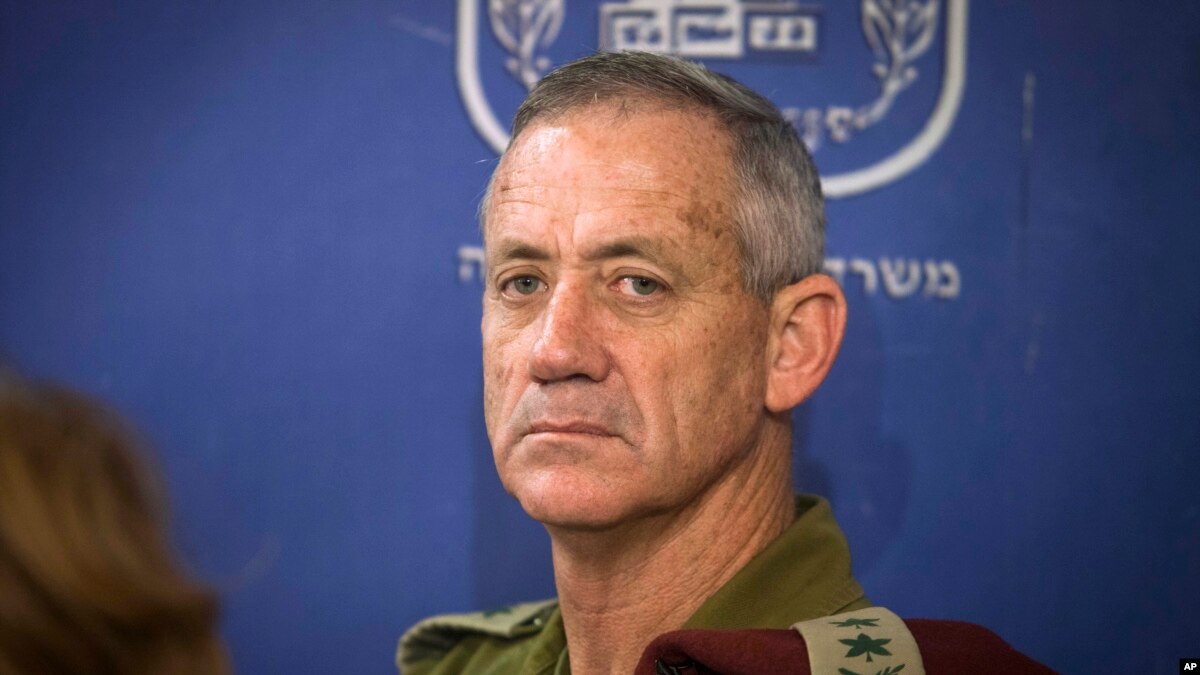
A former Israeli armed forces chief who opinion polls show poses the toughest challenge to Prime Minister Benjamin Netanyahu's bid for reelection next year formally established a political party on Thursday.
Details about Benny Gantz's Israel Resilience Party, leaked to local media after it was registered, gave little indication of its ideological tilt.
Along with preserving Israel as "a Jewish and democratic country," the party pledged unspecified changes to priorities in national security and the economy.
Polling has predicted an easy win for Netanyahu in the April 9 election, with his rightist Likud party taking around 30 of parliament's 120 seats and on course to form a right-wing coalition government similar to the current Cabinet.
The surveys, published after Netanyahu announced on Monday an election some seven months before one was due by law, gave second place to a then-hypothetical Gantz party. The polls forecast it would take around 15 seats.
Netanyahu is running for a fifth term under the shadow of three corruption investigations in which police have recommended his indictment. He has denied any wrongdoing.
Israel's attorney-general has still to decide whether to charge Netanyahu and it is unclear whether he will make his announcement before the election.
Should Gantz emerge as a center-left candidate, that could work in Netanyahu's favor by further fracturing an already disparate opposition bloc.
Gantz, 59, became Israel's top general in 2011 after stints as commander of forces on the combustible northern frontier with Syria and Lebanon and as military attache in Washington. During his four-year term he oversaw two wars in the Hamas-ruled Gaza Strip.
Egypt Voices Support for Protest-hit Sudan
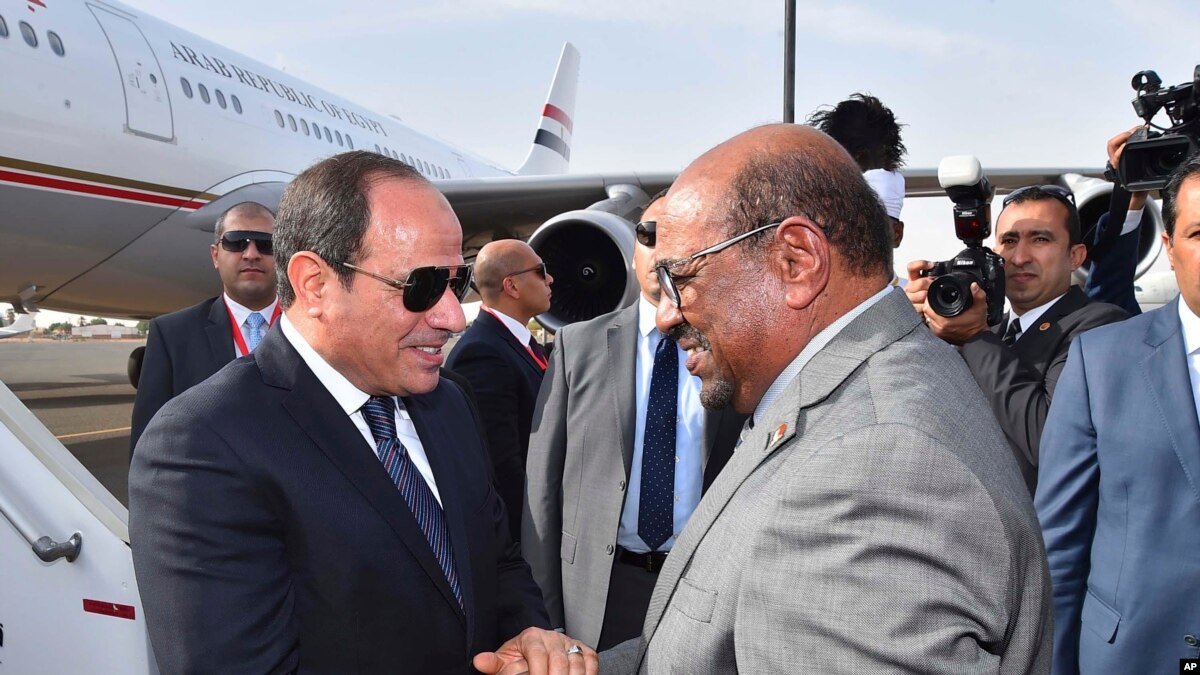
Egypt's foreign minister on Thursday voiced support for Sudan's embattled government, as Khartoum grapples with demonstrations against price hikes in which a disputed number of protesters have been killed.
Cairo's Foreign Minister Sameh Shoukry and intelligence chief General Abbas Kamel arrived in Sudan's capital on Thursday for talks with President Omar al-Bashir and other officials at a time when angry crowds have held anti-government rallies in Khartoum and other cities.
"Egypt is confident that Sudan will overcome the present situation," Shoukry told reporters after he met Bashir at the presidential palace in Khartoum.
"Egypt is always ready to support Sudan and the ability of Sudanese people as per the government of Sudan's vision and policies," he said.
The "stability of Sudan means (the) stability of Egypt," Shoukry said in what were the first remarks by a top regional Arab official in support of Bashir's government since protests began on December 19.
The visit of the two Egyptian officials comes after the protests evolved into deadly clashes between riot police and protesters angered by a trebling of bread prices to three Sudanese pounds (about six US cents).
Sudanese authorities say eight demonstrators have been killed, but Amnesty International has put the death toll at 37, citing "credible reports".
Cairo and Khartoum have recently sought to iron out their differences in a bid to improve relations roiled by a longstanding border dispute and an impasse in talks over Ethiopia's Nile dam.
In October Sudan lifted a ban on agricultural imports from Egypt during a visit to Khartoum by Egyptian President Abdel Fattah el-Sissi.
Saudi King Orders Cabinet Shakeup After Khashoggi’s Killing
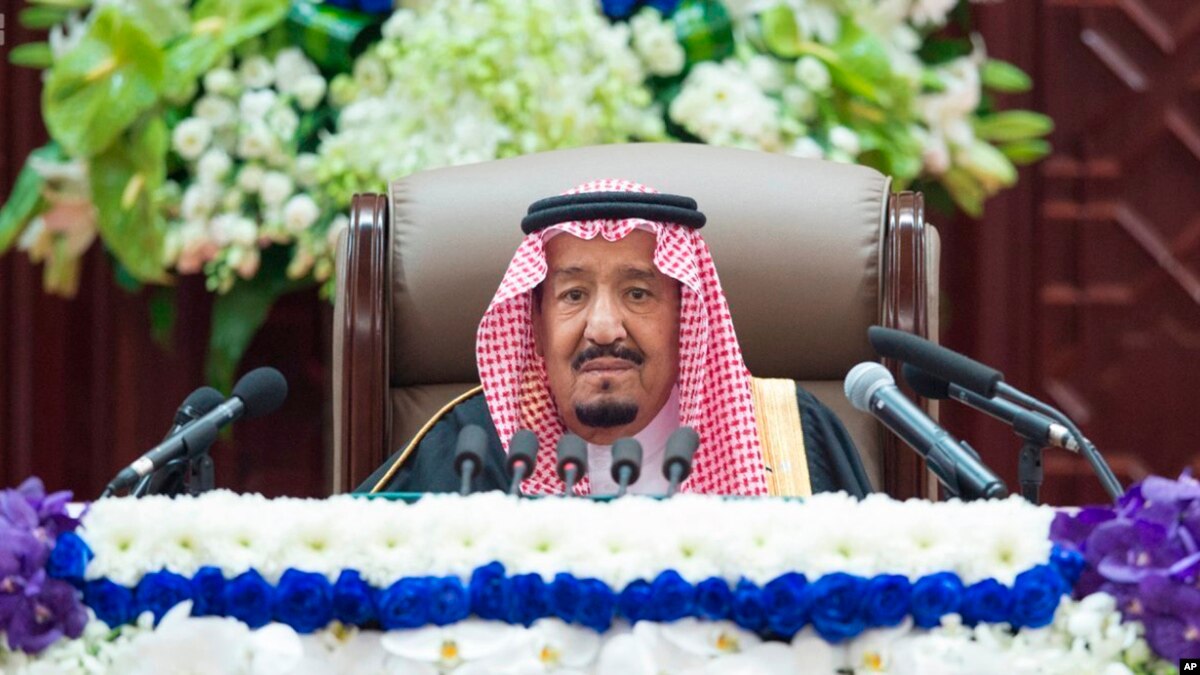
Saudi Arabia’s King Salman has issued a wide-ranging overhaul of top government posts, including naming a new foreign minister, following international fallout from the killing of Saudi writer Jamal Khashoggi nearly three months ago.
Adel al-Jubeir, the soft-spoken foreign minister since 2015, was replaced by Ibrahim al-Assaf, who was formerly a finance minister. Al-Jubeir was appointed to the post of minister of state for foreign affairs.
Al-Assaf had been serving as minister of state, and has held a seat on the boards of oil-giant Saudi Aramaco and the kingdom’s sovereign wealth fund, the Public Investment Fund.
The changes, which impact several key ministries, come as the king and his son, Crown Prince Mohammed bin Salman, were looking to announce a major reshuffle following Khashoggi’s killing by Saudi agents in Istanbul.
UAE to Reopen Damascus Embassy on Thursday in Boost for Assad
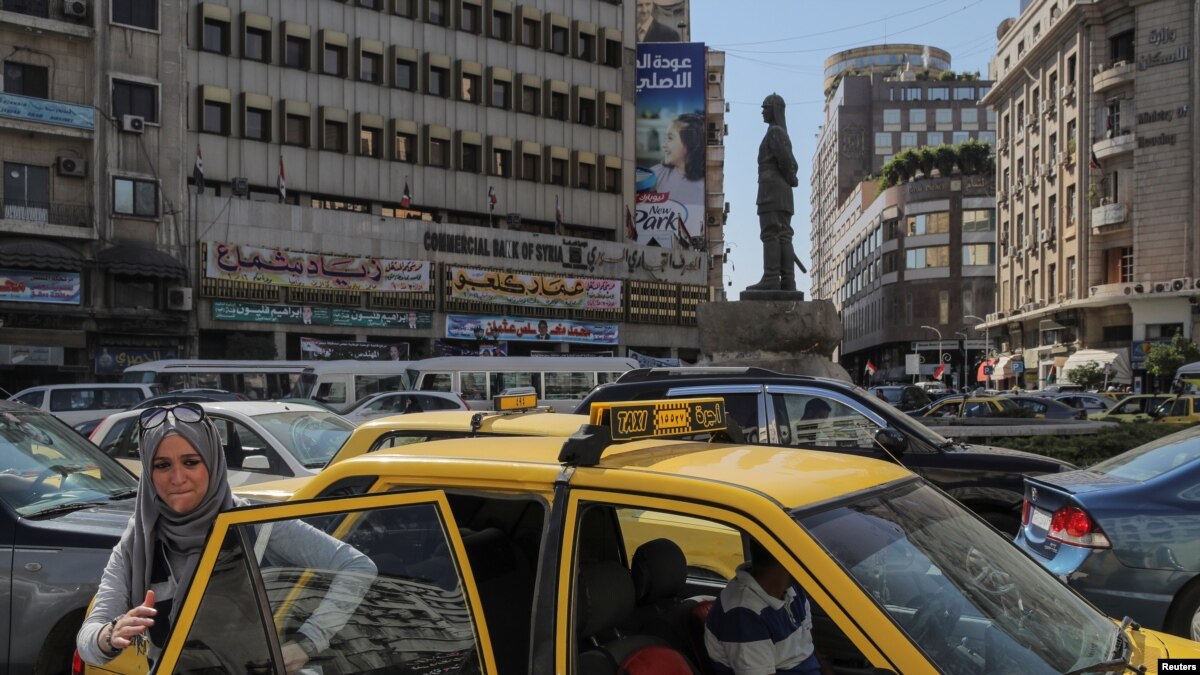
The United Arab Emirates is to reopen its embassy in Damascus on Thursday, a step that would mark a big diplomatic boost for President Bashar al-Assad from a U.S.-allied Arab state that once funded rebels fighting him.
The embassy has been shut since the early months of Syria's conflict, which erupted in 2011.
Saudi-owned al Arabiya television confirmed the UAE Embassy reopening first reported by Syria's Information Ministry. A ministry note to journalists invited them to cover the event at 1:30 p.m. (1130 GMT) at the embassy, located in the Abu Rummaneh district of the capital Damascus.
The United Arab Emirates was one of several regional Arab states that backed armed groups opposed to Assad, though its role was less prominent than Saudi Arabia, Qatar or Turkey, rebel sources have said.
Nearly eight years into the war, Assad has recovered control of the bulk of Syria with critical support from Russia, Iran, and Iranian-backed Shi'ite Muslim groups such as Lebanon's Hezbollah.
His military advances gathered pace this year with the defeat of the last big rebel enclaves near Damascus and recovery of the southwestern region at the border with Jordan and the Israeli-occupied Golan Heights.
Earlier this month, Sudanese President Omar al-Bashir became the first Arab head of state to visit Damascus since the start of the Syrian conflict, flying into Damascus airport.
The border crossing between Syria and Jordan, another U.S.-ally that backed the rebels, was reopened in October.
The Arab League suspended Syria's membership in 2011. An Arab diplomat, speaking on condition of anonymity, told Reuters last week he believed a majority wanted Syria to return to the League — with only three Egyptian state-run media have called for Syria to be reinstated. The secretary-general of the Arab League, veteran Egyptian diplomat Ahmed Aboul Gheit, said in April that the decision to suspend Syria had been "hasty."
Arab state support was funneled to Syrian rebels through a program overseen by the U.S. Central Intelligence Agency until President Donald Trump ordered it shut down last year.
The anti-Assad rebels' last foothold is an arc of northwestern territory abutting the border with Turkey, which still supports them.
In another potential boost to Assad, Trump also last week decided to withdraw U.S. forces that are deployed in areas of northern and eastern Syria in support of Kurdish-led militia.
Damascus has vowed to recoup control of the region currently controlled by the U.S.-backed Syrian Democratic Forces. The area, which includes oil fields, water resources and farmland, amounts to roughly one quarter of Syria.
Wednesday, December 26, 2018
Syrian Refugees in Lebanon Fall Deeper Into Debt
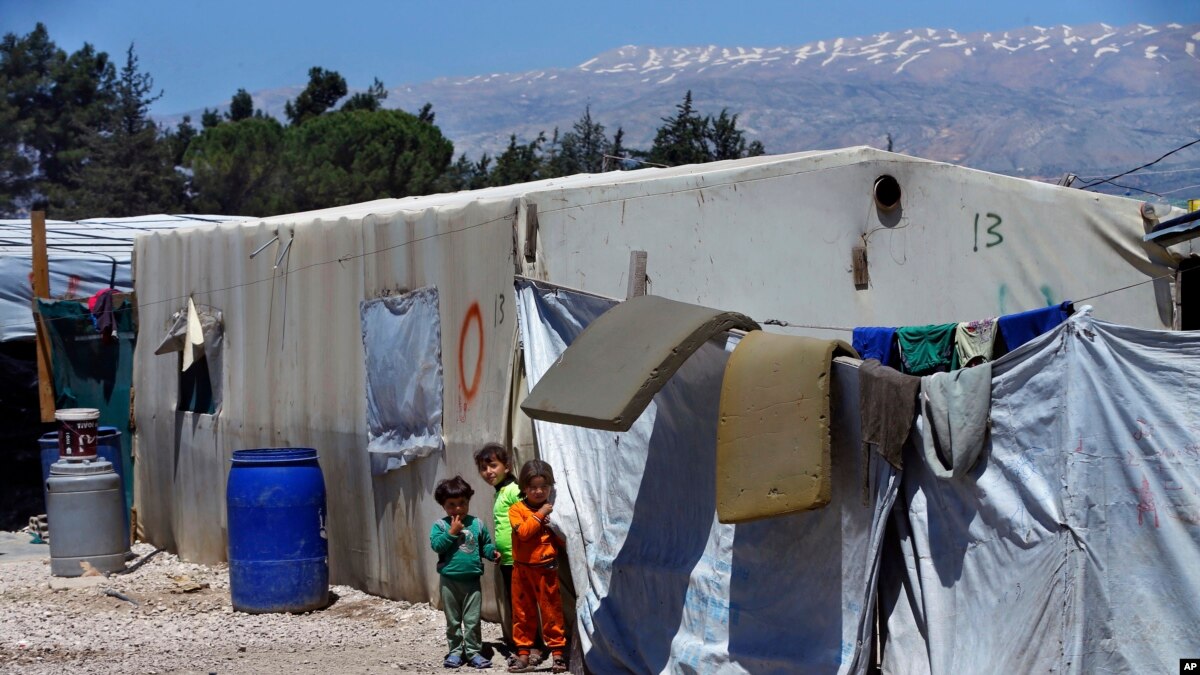
Syrian refugees in Lebanon are falling deeper into debt, with 2018 being the worst year yet, as more families marry off children to cope financially, according to a U.N. report released Wednesday.
The study by the U.N. refugee agency (UNHCR), the World Food Program (WFP) and the U.N. children's fund (UNICEF) stated that the average household debt had increased from $800 in 2016 to more than $1,000 in 2018.
The Syrian conflict that erupted in 2011 has generated 5.6 million refugees in the Middle East, with Lebanon hosting more than 950,000 registered refugees, according to UNHCR.
With families struggling to afford food, rent and medicine, child marriage is also on the rise.
Twenty-nine percent of Syrian girls age 15 to 19 are married in Lebanon, a number that has been growing, according to the report.
"These findings are a reminder to all of us that the situation for children is becoming more delicate," said Tanya Chapuisat, UNICEF representative, said in the report. "We are seeing refugee families resorting to behaviors that put their children at increasing harmful risks."
About 69 percent of Syrian refugee families in Lebanon are living below the poverty line, and nearly eight out of 10 Syrian kids age 3 to 5 and 15 to 17 are not in school.
Many children are forced to work, cannot afford transportation or lack the supplies they need to go to school.
The proportion of Syrian child refugees working in Lebanon has risen to 7 percent from 4 percent in late 2016, according to research by the Danish Refugee Council.
Shelter conditions have also worsened among Syrian households, and 34 percent now live in non-residential or non-permanent structures, an increase from 26 percent in 2017 according to the report.
"The study is a poignant reminder of the daily hurdles refugees have to go through just in order to survive," UNHCR Representative in Lebanon Mireille Girard said in the report.
Israeli Parliament Votes to Dissolve Parliament and Hold Early Elections
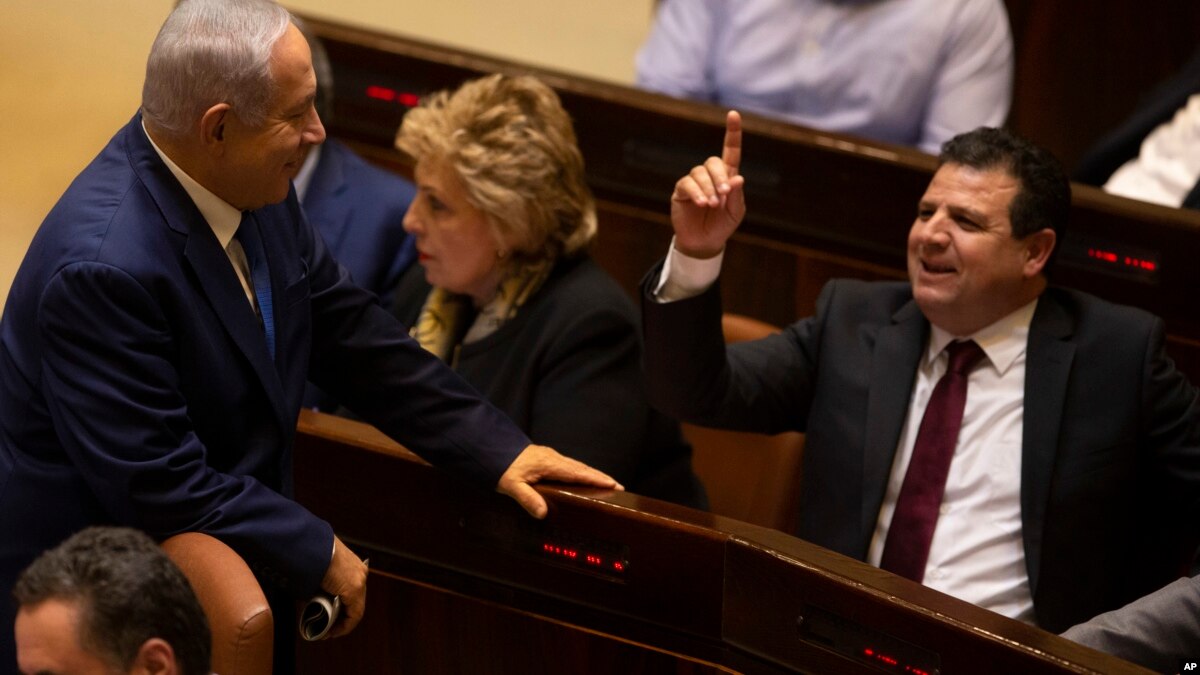
Israeli legislators voted Wednesday to dissolve parliament and hold a general election six months ahead of schedule on April 9.
The lawmakers voted 102 to 2 in favor of the moves after they were agreed to Monday by Prime Minister Benjamin Netanyahu's coalition.
A coalition crisis over legislation affecting exemptions from compulsory military service for ultra-Orthodox Jewish men led to the decisions.
Netanyahu, who leads the right-wing Likud party, has been governing with a slim majority of 61 seats in the 120-member parliament.
Opinion polls suggest Nethanyahu's party will likely win re-election. Those chances could be hurt, however, by an upcoming decision by Israel's attorney general on whether to file charges against Netanyahu.
Netanyahu is facing a series of corruption allegations and an indictment would pressure the prime minister to resign.
Trump Visits Iraq on Unannounced Visit

President Donald Trump has made an unannounced visit to Iraq to visit U.S. troops stationed there.
"President Trump and the First Lady traveled to Iraq late on Christmas night to visit with our troops and Senior Military leadership to thank them for their service, their success, and their sacrifice and to wish them a Merry Christmas," White House press secretary Sarah Sanders said in a tweet.
This is Trump's first visit to a conflict zone as president.
18 Arrested in Tunisia Amid Violent Protests
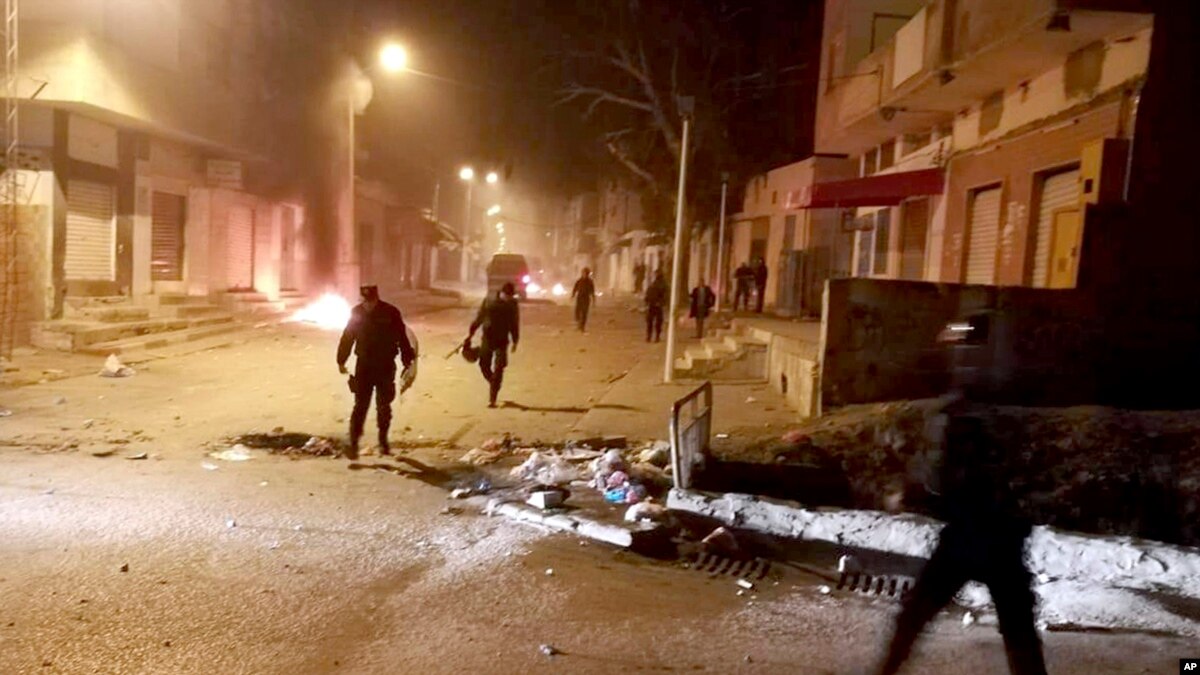
Tunisian authorities say 18 people have been arrested during protests that erupted after the death of a journalist who set himself on fire to protest economic problems in the North African nation.
Interior Ministry spokesman Sofiane Zaag said 13 were arrested in the provincial city of Kasserine and five others in Tebourba, near Tunis.
Clashes between police and Tunisian authorities took place in several regions over the past two days after journalist Abderrazak Zorgui posted a video online before his self-immolation in Kasserine describing his desperation and calling for revolt. He expressed frustration at unemployment and the unfulfilled promises of Tunisia's 2011 Arab Spring revolution.
The most violent protests took place in Kasserine, in west central Tunisia, where police used tar gas to disperse stone-throwing demonstrators.
Israel to Allow Medical Marijuana Exports

Israel’s Parliament has unanimously approved a law to permit exports of medical marijuana, allowing Israel to tap the lucrative global market.
Israel will become the third country, after the Netherlands and Canada, to take its medical cannabis global.
The Israeli medical cannabis company iCAN predicts the global industry will reach $33 billion in the next five years, as stigma fades and demand grows for the few countries certified to export.
The law was approved late Tuesday, sending cannabis company shares rising by about 10 percent.
The law was stalled for years over fears from security officials that medical marijuana would leak into the black market. To assuage concerns, the law empowers police to supervise licensing.
The Israeli Cabinet must give final approval — a step seen as a formality.
Iran Says Private Exporters Had no Problem Selling its Oil
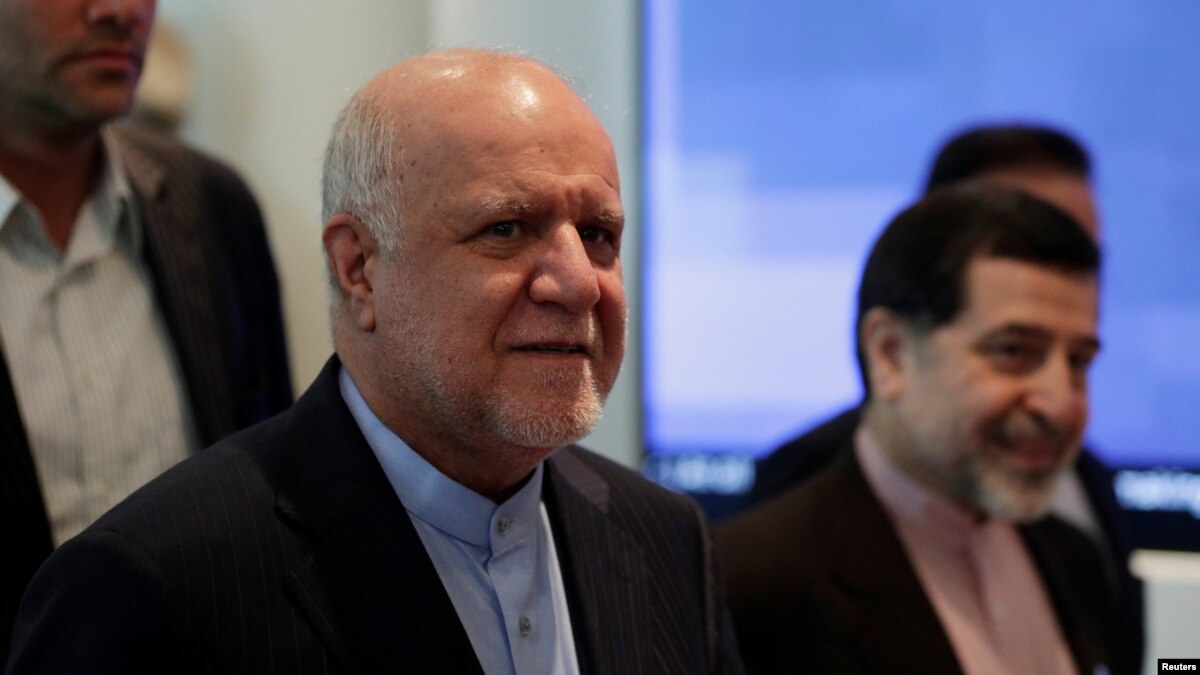
Iran said on Wednesday private exporters have had “no problems” selling Iranian oil, and 3 million barrels of crude could be sold soon to non-government traders, state media reported, despite U.S. sanctions targeting Tehran’s oil sales.
Iran began selling crude oil to private companies for export in late October, just ahead of U.S. sanctions on sectors including oil which came into effect in November.
“Those who bought oil on the bourse have been able to export and there have been no problems in this regard,” the state news agency IRNA quoted Oil Minister Bijan Zanganeh as saying without giving further details about the exports.
After reimposing the oil sanctions, Washington granted exemptions to eight countries allowing them to temporarily continue buying Iranian oil.
Iran, where crude oil trade is state-controlled, sold 280,000 barrels of crude oil to private companies on an energy exchange in October, followed by 700,000 barrels in November, as part of an export plan to beat U.S. sanctions.
Zanganeh said a state economic body had approved the sale of up to 3 million barrels of oil in a third round of sales to private exporters, IRNA reported.
“A buyer can choose to pay with hard currency or rials for the crude oil on the bourse,” Zanganeh said, adding that details of the sales would be announced soon.
The United States began reimposing sanctions against Iran after withdrawing in May from a multinational 2015 Iran nuclear accord.
Egypt ’s 2 ex-Presidents Appear in the Same Courtroom
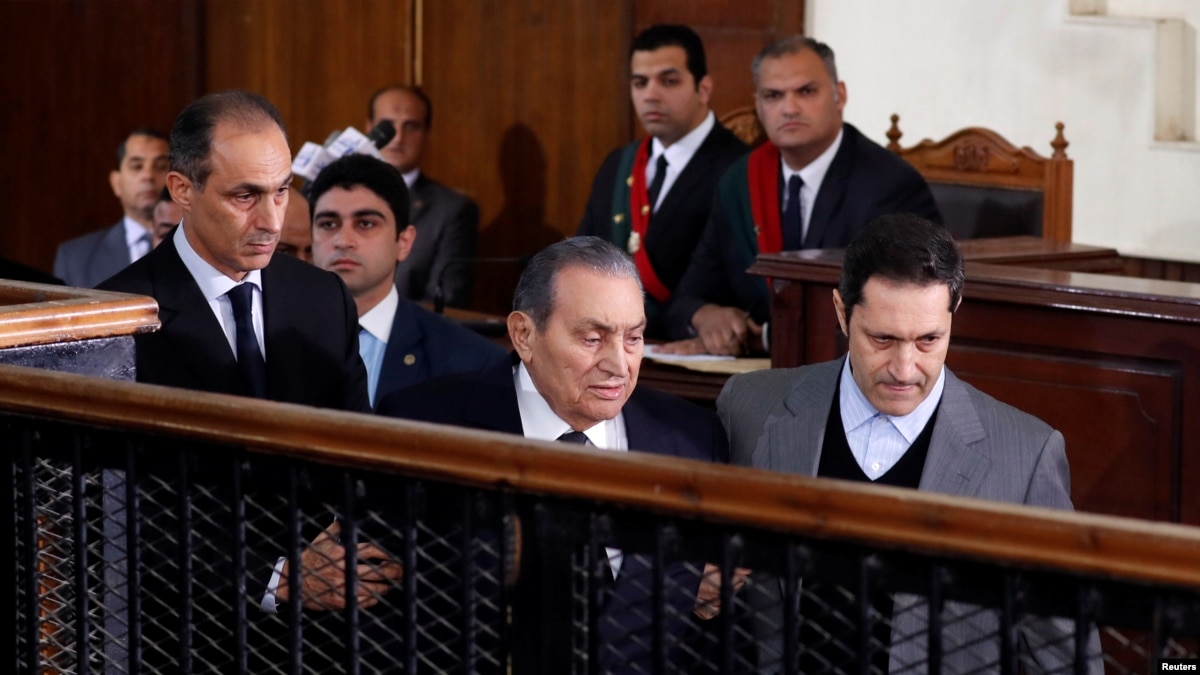
Two former Egyptian presidents have appeared in the same Cairo courtroom, with Hosni Mubarak testifying in a retrial of Mohammed Morsi.
The 90-year-old Mubarak, whose nearly three-decade rule was ended by a popular uprising in 2011, could be seen walking into the courtroom with a cane on Wednesday.
Morsi, an Islamist who became Egypt’s first freely elected president the following year, was removed from power by the military in 2013 amid mass protests against his divisive rule. The jailed former leader now faces an array of charges in multiple court cases.
Wednesday’s trial concerns a jailbreak staged by Morsi and other leaders of the Muslim Brotherhood group during the 2011 uprising.
Mubarak refused to answer most questions, saying he needs permission from President Abdel-Fattah el-Sissi and the military.
Tuesday, December 25, 2018
Christmas Declared National Holiday in Iraq
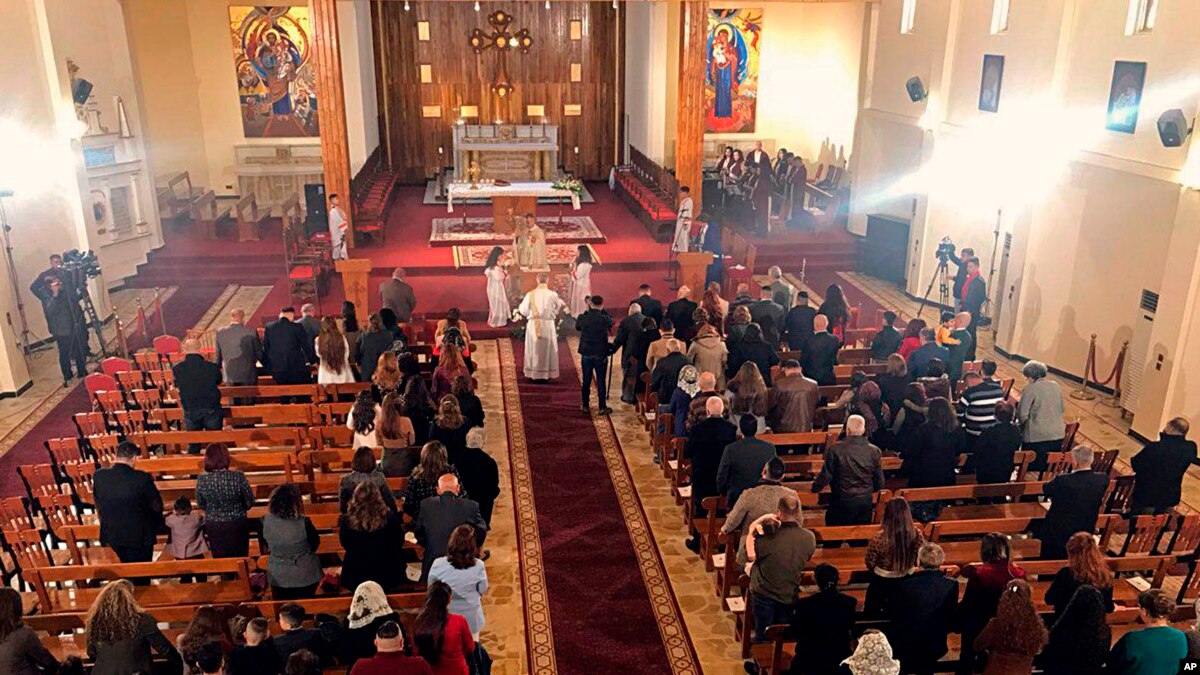
The Iraqi government has declared Christmas Day a national holiday across the country "on the occasion of the birth of Jesus Christ."
December 25 will now be a holiday for residents of the predominantly Muslim country, not just the Christians as it had been for decades.
The government said in a tweet Tuesday:
Before the U.S.-led invasion of Iraq in 2003, there were an estimated 1.5 million Christians in Iraq. The number has fallen to about 300,000, with many being killed or forced to flee after coming under attack by various armed groups, including Islamic State, over the years.
British-Iranian Professor Home After Detention in Iran
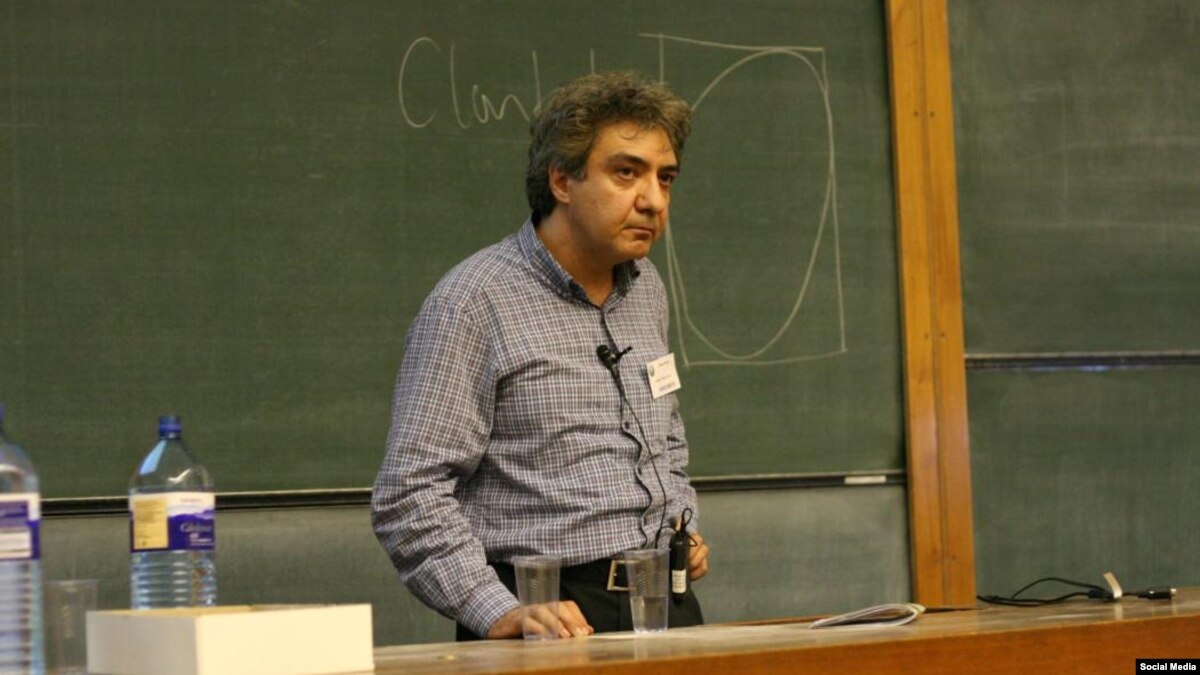
A British-Iranian professor who had been held in Iran since April has returned to England.
Abbas Edalat, who teaches mathematics and computer science at Imperial College London, was arrested and held on unspecified security charges.
Edalat, who has dual Iranian and British citizenship was in Iran to visit family and attend an academic conference at the time of his arrest.
The Campaign Against Sanctions and Military Intervention in Iran, charity Edalat founded, said he was released last week.
"It increasingly appears, as we had suspected, that his detention in spring in Iran was a case of misinformation and misunderstanding by the Iranian security apparatus," the group said in a statement.
Edalat was one of dozens of dual citizens in Iranian jails, including Nazanin Zaghari-Ratcliffe who has been jailed since 2016.
The British-Iranian charity worker is serving a five-year sentence for spying, which she denies.
On Tuesday, British Foreign Secretary Jeremy Hunt tweeted, "As we celebrate, let's also remember those unjustly imprisoned like Nazanin Zaghari-Ratcliffe who is 40 tomorrow."
Iran, which does not recognize dual citizenship, has been accused of arresting and jailing Iranians with second citizenships in order to use them as win concessions in negotiations.
Iraq: A Year After Victory, Stability Still a Dream
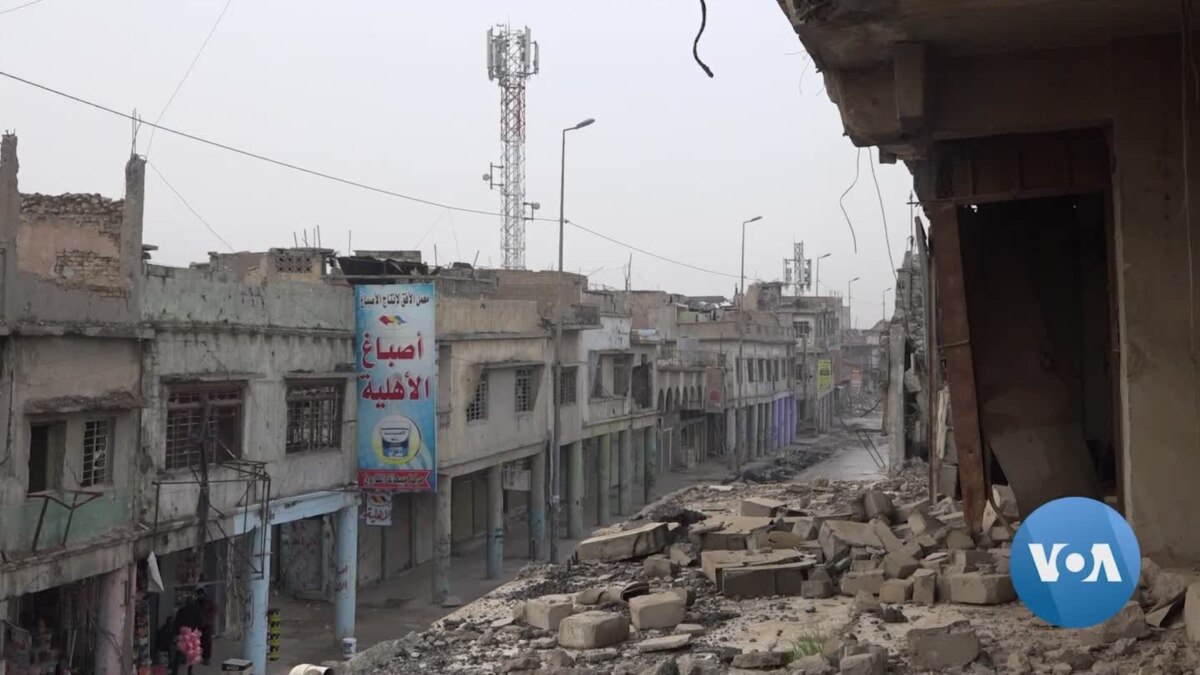
A year after Iraq declared victory against Islamic State militants who had occupied parts of the country, much of the areas once under their control remain destroyed. The city of Mosul is one such place and residents say until it is rebuilt, stability will remain a distant dream. VOA’s Heather Murdock has this report from Mosul.
Read More Iraq: A Year After Victory, Stability Still a Dream : http://bit.ly/2BFZ5hbChristmas Revived in a Village Devastated by Islamic State Group
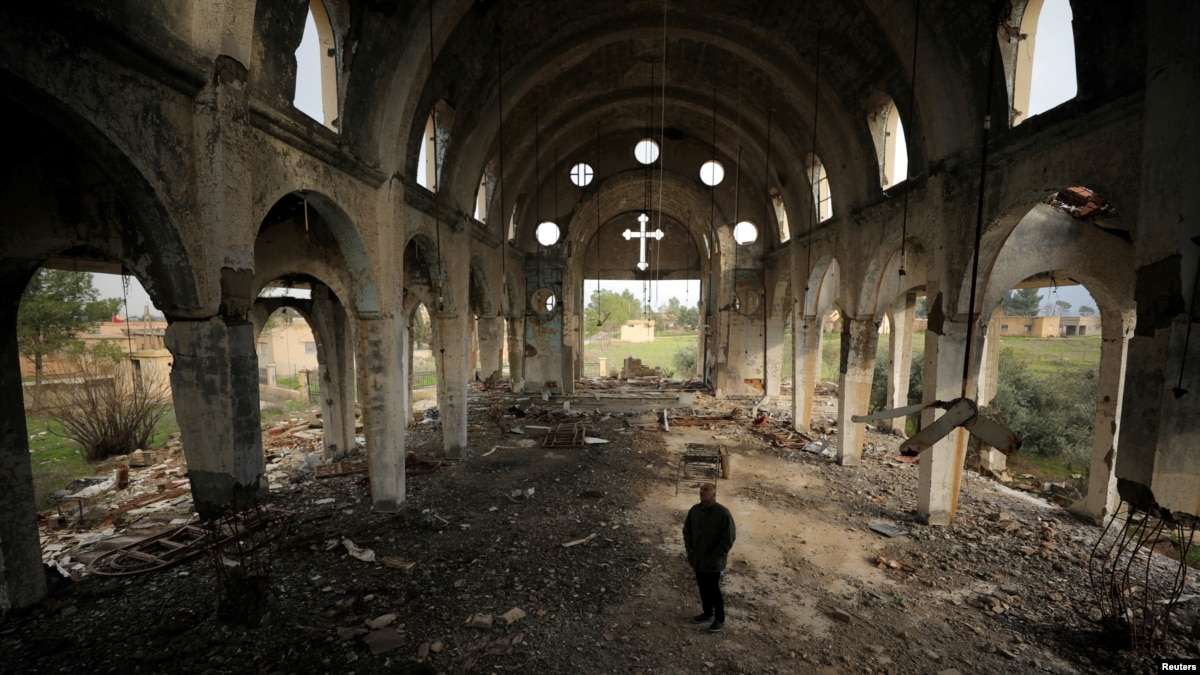
The one family still living in a Christian village devastated by Islamic State is working to revive Christmas traditions that have brought at least a few of its people home for the holiday.
Tel Nasri was one of dozens of Assyrian Christian villages in northern Syria targeted by the jihadist group when it was near the peak of its power. They blew up its 80-year-old church on an Easter Sunday and abducted hundreds of people.
Kurdish forces and local fighters seized the village a few months later, in May 2015, but nobody has returned.
“I was born and raised in Tel Nasri, I’m still here and I’m staying,” said Sargon Slio, 51, a farmer who stayed on with only his brother and two cousins. Before the fighting, the village was home to nearly 1,000 people, he said.
Some 265 Assyrians were kidnapped from Tel Nasri, Slio said, and on their release, like the rest of the villagers, they fled.
“There used to be hundreds of people celebrating. You’d see dancing and hear singing. Everyone decorated the houses and Christmas trees,” Slio said. “Now we are four people.”
His mother, Zekta Benjamin, 73, has returned from Belgium for Christmas - the second time since she left in 2015. Another relative has come from Australia.
“I miss a lot the life of the village and my neighbors and relatives and everything in this place,” said the mother of 11, most of whom now are in Europe and the United States.
Along with his relatives, Slio tends to farms and makes repairs to a small church. He runs the abandoned village as part of a committee to protect the properties of minorities, which the Kurdish-led authority in the north set up.
“Being here in the village ... it’s my moral duty to protect these homes as much as I can,” he said.
He hopes to get funding from Syria’s Assyrian Church and aid agencies to rebuild the big 80-year-old church of the Virgin Mary which the militants leveled.
He is also trying to encourage others to come home.
“These are our families, our loved ones ... They say when the region becomes stable, we will all return.”
Algeria Sentences Journalist to Year in Jail Over Demonstration
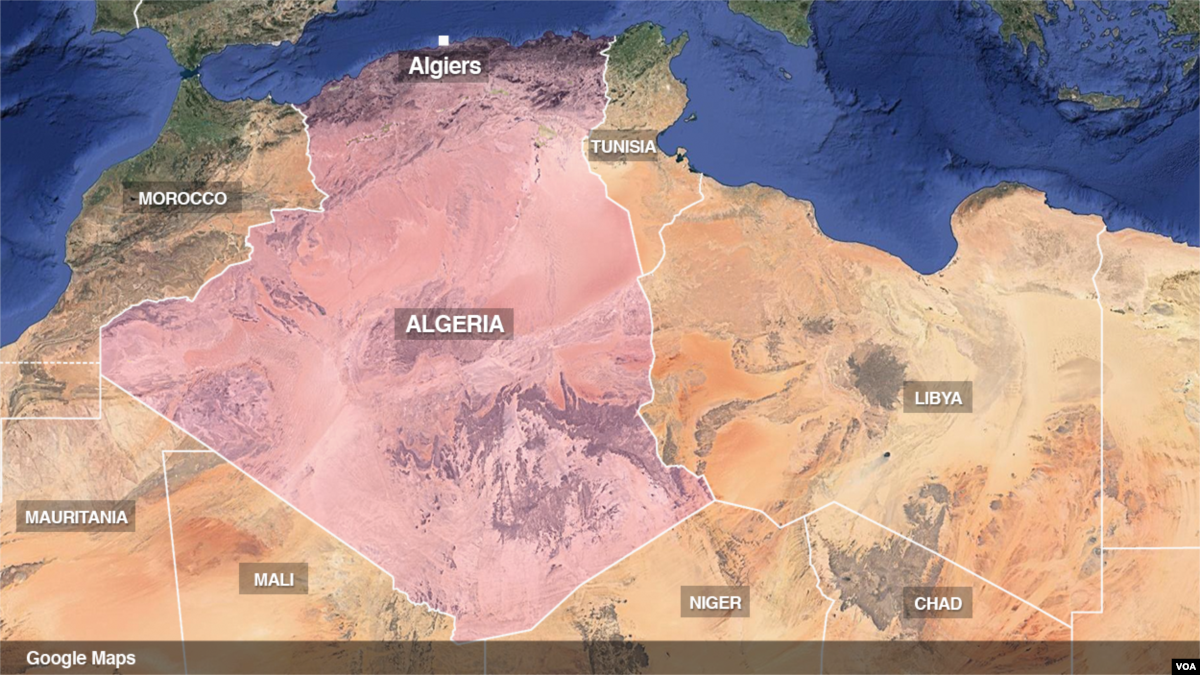
An Algerian court on Tuesday sentenced a journalist to one year in jail for taking part in an illegal protest, his lawyer said.
Adlene Mellah, who heads the news websites Algerie Direct and Dzair Presse, was arrested on December 9 for participating in a rally of solidarity for a singer who has been jailed since October.
He was accused of taking part in an illegal protest and incitement to demonstrate, the lawyer Abdel Ghani Badi told AFP, adding that he would appeal the sentence.
"I am shocked to see Algerian citizens accused of unlawful protests in 2018 when the right to demonstrate is guaranteed by the constitution," the lawyer said.
Last week the state prosecutor demanded Mellah be jailed for three years.
Mellah is due to appear in court on February 7 in another case in which he is accused of "bribery, defamation and violation of privacy", according to his lawyers.
2 Dead, 11 Wounded by Car Bomb in Northern Iraqi City Tal Afar
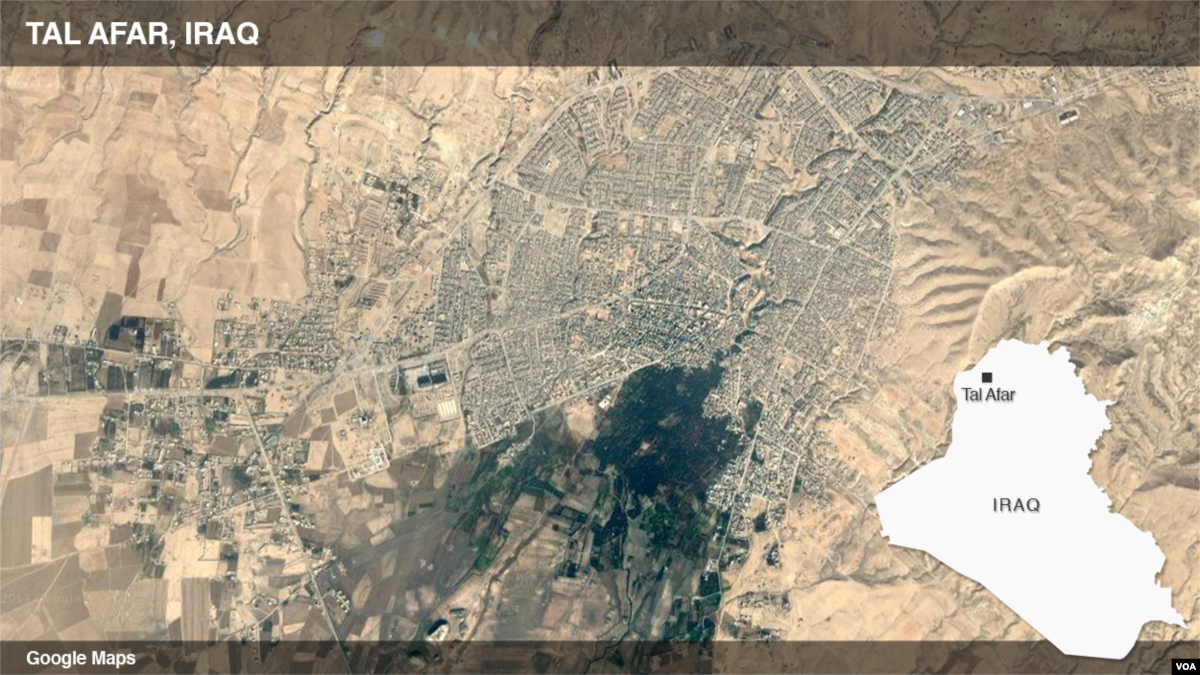
At least two people were killed and 11 wounded on Tuesday by a car bomb in the northern Iraqi city of Tal Afar, a former Islamic State stronghold, the military said.
Islamic State claimed responsibility for the attack hours later, via its Amaq news agency.
Tal Afar, about 80 km (50 miles) west of Mosul, experienced cycles of sectarian violence between Sunnis and Shi'ites after the U.S.-led invasion of Iraq in 2003, and produced some of Islamic State's most senior commanders.
The city, which had about 200,000 residents, came under the militants' control when Islamic State overran swathes of Iraq's north in 2014.
It fell to Iraqi Security Forces, backed by the U.S.-led coalition, in August 2017, the last area to be retaken in the north before fighting moved to the Syrian border.
A heavy security presence has remained since then and the city has been mostly quiet.
Tunisians Clash with Police after Journalist Sets Himself Ablaze

A Tunisian journalist has died after setting himself on fire, officials said, in a protest over harsh living conditions that prompted overnight clashes with police in the country's west.
Police fired tear gas at dozens of people who took to the streets Monday night in the city of Kasserine, 270 kilometres (165 miles) from the capital, setting tires ablaze and blocking the main street.
Six members of the security forces were injured and nine protesters were detained, interior ministry spokesperson Sofiane al-Zaq said Tuesday.
By Tuesday morning, calm had returned to the city.
Abdel Razaq Zorgi, a 32-year-old journalist, died late Monday after setting himself on fire over unemployment and worsening economic conditions.
"For the sons of Kasserine who have no means of subsistence, today I start a revolution. I am going to set myself on fire," Zorgi said in a video published before his death.
Both the Ministry of Interior and the National Union of Tunisian Journalists confirmed his death.
The journalists' union said he died protesting "difficult social conditions... and a lack of hope", and that it was considering organizing a general strike in the media sector.
It was the self-immolation of a street vendor in Tunisia in late 2010 in protest at police harassment that sparked Tunisia's revolution and the Arab Spring uprisings across the rest of the region the next year.
Kasserine was one of the first cities to rise up after the vendor's death, in protests that saw police kill demonstrators.
The unrest quickly spread across the country and led to the overthrow of long-time dictator Zine El Abidine Ben Ali.
Despite the country's democratic transition after Ben Ali's ouster and a recent return to economic growth, Tunisian authorities are still struggling to improve poor living conditions.
Inflation fueled by the devaluation of the Tunisian dinar and persistent unemployment sparked protests across the country last January.
El-Sissi's Call on Egyptians to Lose Weight Creates a Stir
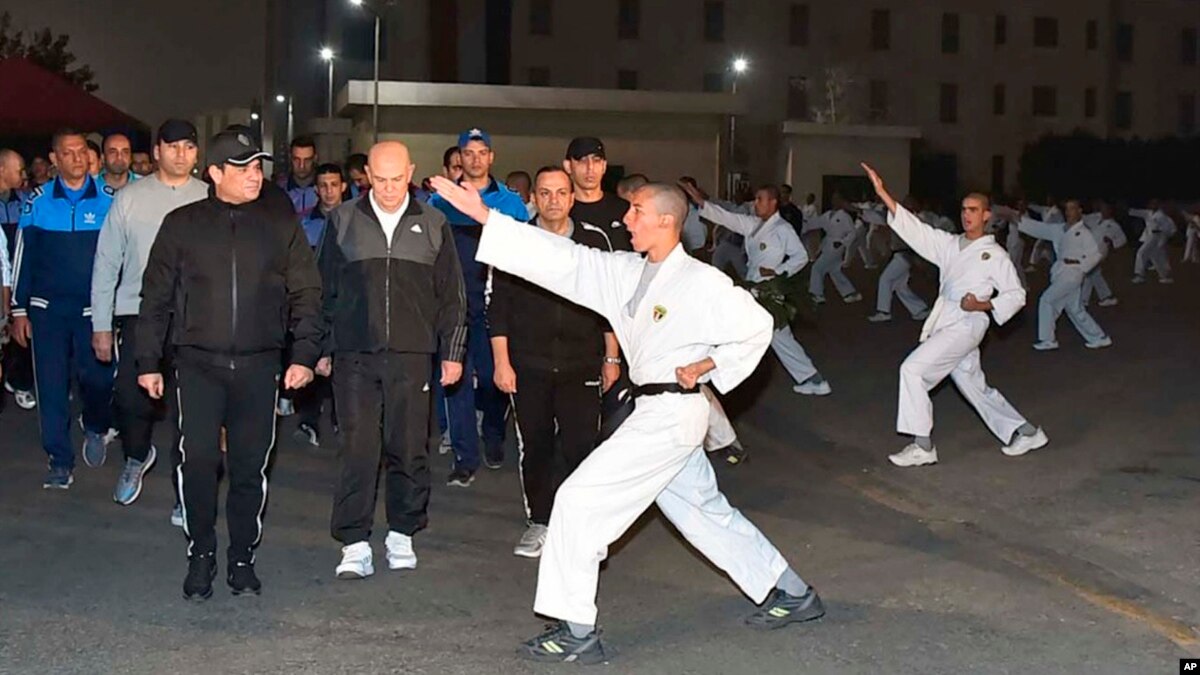
General-turned-president President Abdel-Fattah el-Sissi is demanding Egyptians lose weight.
In televised comments earlier this month, Sissi railed about the number of overweight people he sees and told Egyptians they must take better care of themselves. He said physical education should become core curriculum at schools and universities and suggested TV shows shouldn’t let presenters or guests on the air if they are overweight.
The next morning, before sunrise, he drove his point home by energetically cycling to the national military academy in a Cairo suburb. In black sweat pants, a dark top and a matching baseball hat, he told cadets that he was adamant they wouldn’t leave basic training before fulfilling fitness requirements.
It was the typical style of el-Sissi, who sees even the smallest minutiae as needing his shaping and weighs in on anything from road building to filmmaking, often while scolding and haranguing Egyptians to correct their behavior.
But el-Sissi’s critics said he was fat-shaming and taking an elitist approach to a problem whose roots lie to a large extent in poverty. They also criticized him for not offering concrete plans to combat obesity and spread fitness. Prices for food — particularly fruits and vegetables — have spiraled because of economic reforms introduced by el-Sissi, often making cheaper junk foods more appealing.
No one disputes that Egypt has a weight problem. One in three Egyptians suffers from obesity, the world’s highest rate, according to a 2017 global study by the University of Washington’s Institute for Health Metrics and Evaluation. It found 35 percent of adults — some 19 million people in the country of 100 million — are obese, again the world’s highest rate, as well as 10.2 percent of Egyptian children, or around 3.6 million.
El-Sissi, who often tells Egyptians they must buckle down and accept hardships to get through hard times, said they must change their habits to shed the fat.
“The second I walk into any place I look at things you cannot possibly imagine I would notice; and I ask myself ‘what is this? Who are these people? Why are these people not looking after themselves?’” el-Sissi said in the Dec. 15 comments.
He derided Egyptians for not walking enough and, laughing, turned to his prime minister — seated next to him — and told him not to put on weight.
Egypt’s pro-government media prominently trumpeted his comments. Parliament, packed by his supporters, has said it intends to introduce legislation making physical education part of the core curriculum at schools. Similarly, his education minister said students taking a 10-stop ride on the Cairo metro should get off two stops early and walk to their destination as a form of exercise.
In social media, possibly the only platform of relatively free speech left in Egypt, the response was more critical. Some said el-Sissi was removed from reality or speaks his mind without weighing his words first. A flood of jokes spilled forth on Twitter and Facebook, playing on the risks of being too fat under a president whose security forces have arrested thousands in a widespread crackdown against dissent.
One joke that went viral told of people in a car sucking in their bellies as they approached a police checkpoint. Another has a man asking to hide at a friend’s house from police until he loses weight. In another, a man informs on his overweight wife to authorities on the phone.
El-Sissi’s comments “laid bare a great deal of elitism,” said novelist and socio-political analyst Amar Ali Hassan. “They are symptomatic of an authoritarian ruler who’s convinced he’s on a mission, that he alone knows what is in the public interest while everyone else is ignorant of the lofty goals in his head.”
Since taking office in 2014, el-Sissi has depicted himself as trying to refashion Egypt into a prosperous, stable and modern nation. But he has made sure there is no one influential or brave enough to question any of his policies or offer alternatives. He once angrily told Egyptians to listen to him alone and shouted down a lawmaker who suggested delaying the lifting of subsidies. This month, he declared he did not allow feasibility studies to be the deciding factor on the multi-billion-dollar projects he has embarked on.
Some of his policies have seen successes. The country is slowly recovering from the economic slump it suffered in the years after a 2011 uprising that toppled autocrat Hosni Mubarak. Security has improved.
But el-Sissi has also sought to quash any opposition, jailing thousands of Islamists along with secular pro-democracy activists, silencing critics in the media, reversing freedoms won in the 2011 uprising and winning a second term in office this year after authorities jailed potentially serious challengers or intimidated them out of the race.
Some longtime el-Sissi critics commended him for drawing attention to the need to fight obesity. But they pointed out that Egypt’s poor majority cannot afford to eat healthy when a diet of sugar and carbs is cheaper.
“The president’s concern with health and weight should not be taken against him,” Negad Borai, a rights lawyer banned by authorities from travel, wrote on Facebook. “Poverty never stopped anyone from exercising.”
Mohamed Zaree, another rights lawyer, said el-Sissi needs to enable Egyptians to lose weight rather than ordering them to exercise.
“He needs to make healthy food available at low prices, set up venues where people can exercise and allow emergency obesity operations to be performed under the cover of the state’s medical care system,” he said.
Read More El-Sissi's Call on Egyptians to Lose Weight Creates a Stir : http://bit.ly/2V37OTkIran Submits First Budget Since US Sanctions Were Restored
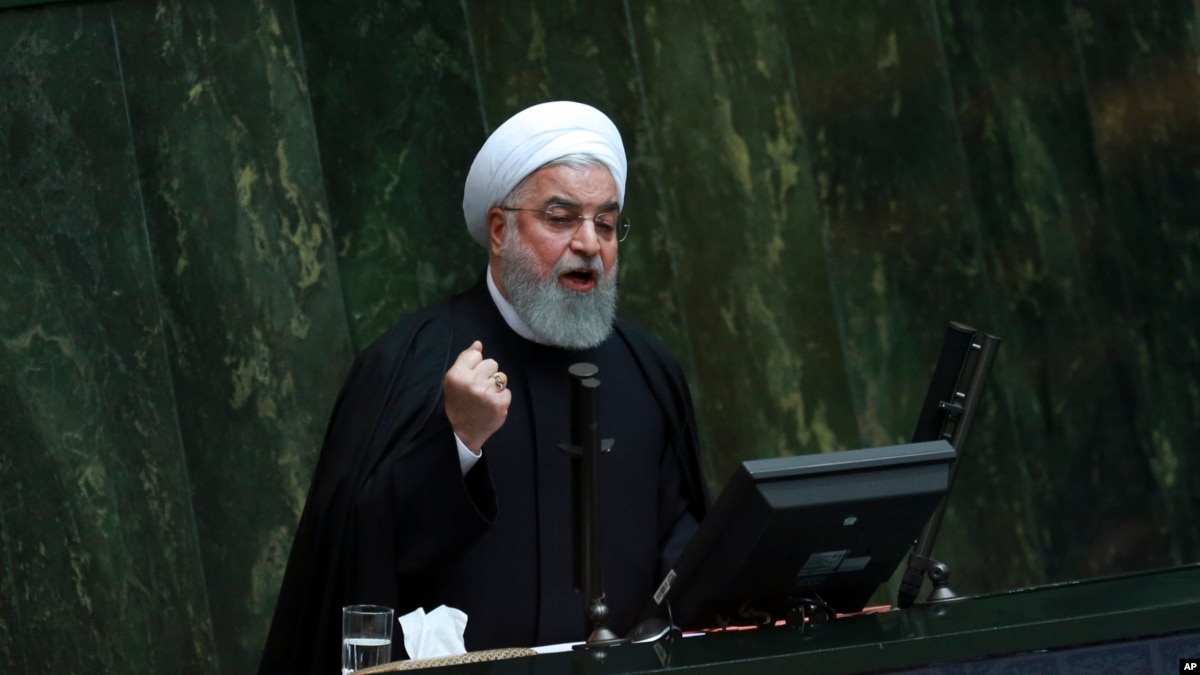
Iran’s president submitted next year’s budget to parliament on Tuesday, the first since the United States restored sanctions that had been lifted under the nuclear deal.
The $47.5 billion budget is less than half the size of last year’s, mainly due to the severe depreciation of the local currency following President Donald Trump’s decision to withdraw from the 2015 nuclear deal with world powers. The Iranian rial has fallen from around 42,000 to the dollar a year ago to around 100,000 today.
The government plans to fund 35 percent of the budget with oil revenues, projecting exports of up to 1.5 million barrels a day at a maximum of $54 a barrel.
The opaque budget bill did not include a projected deficit or a reference to military expenditures. Earlier this month, Iranian Foreign Minister Mohammad Javad Zarif said Iran spends less than $16 billion on its armed forces.
The U.S. restored tough sanctions on Iran’s vital oil industry in November, but granted waivers to a number of nations allowing them to continue imports in exchange for commitments to reduce them over time.
President Hassan Rouhani said the sanctions have hurt Iran but will not bring the Islamic Republic “to its knees.”
He said the sanctions will mainly harm Iran’s economic development and its poorer citizens. The government is allocating $14 billion to import medicine, medical equipment and other necessities, slightly more than the $13 billion allocated last year.
Lawmakers interrupted Rouhani’s speech on two occasions to protest the government’s water policies. Iran is suffering from a decade-long drought, and water shortages have sparked protests over the past year.
The budget will be subject to changes during a parliamentary review lasting more than a month. The final bill must be approved by a clerical council.
Iraqi Christians celebrate Christmas One Year after Islamic State Defeat
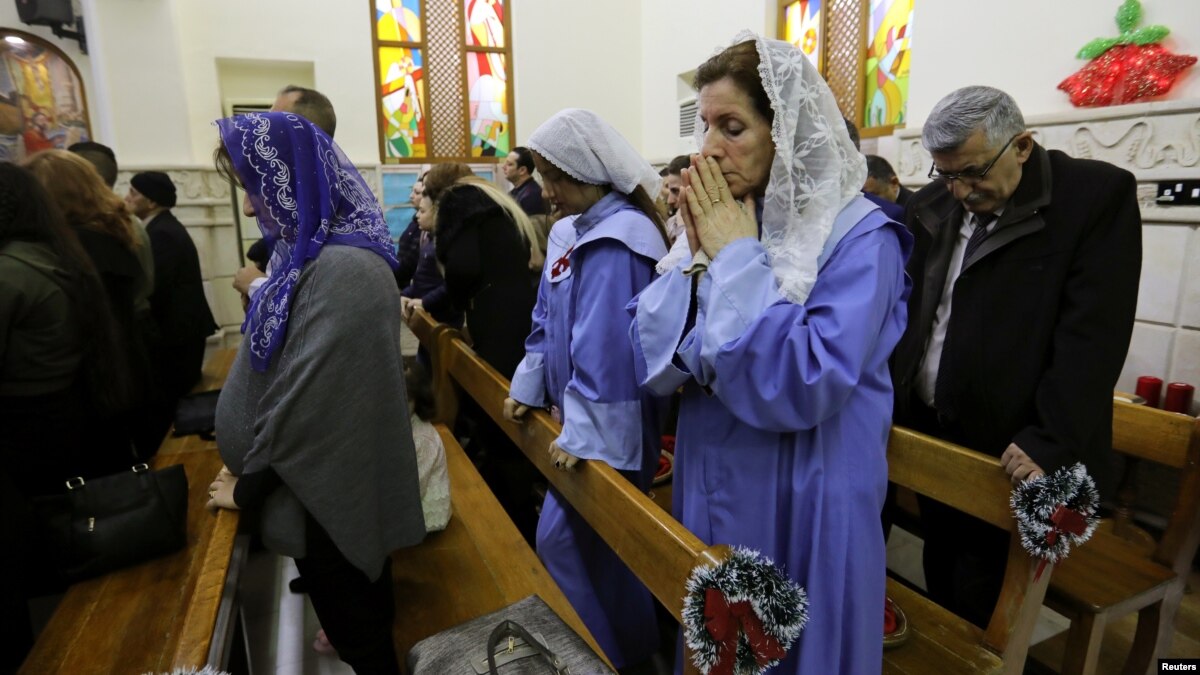
Iraqi Christians quietly celebrated Christmas on Tuesday amid improved security, more than a year after the country declared victory over Islamic
State militants who threatened to end their 2,000-year history in Iraq.
Christianity in Iraq dates back to the first century of the Christian era, when the apostles Thomas and Thaddeus are believed to have preached the Gospel on the fertile flood plains of the rivers Tigris and Euphrates.
Iraq is home to many different eastern rite churches, both Catholic and Orthodox, traditionally a sign of the country's ethnic and religious diversity.
But war and sectarian conflict shrank Iraq's Christian population from 1.5 million to about 400,000 after the U.S.-led invasion in 2003.
Following the onslaught of Islamic State in 2014 and the brutal three-year war that followed their numbers have fallen further, though it is not known exactly by how much.
In Baghdad, Christians celebrated mass on Tuesday morning – declared a national holiday by government -- in churches decorated for Christmas. Once fearful, they said they were now hopeful, since conditions had improved.
"Of course we can say the security situation is better than in previous years," said Father Basilius, leader of the St. George Chaldean Church in Baghdad where more than a hundred congregants attended Christmas mass.
"We enjoy security and stability mainly in Baghdad. In addition, Daesh was beaten," he said, using the Arabic acronym for Islamic State.
Iraq declared victory over the militants more than a year ago, but the damage done to Christian enclaves on the Nineveh Plains has been extensive.
In Qaraqosh, a town also known as Hamdaniya which lies 15 km(10 miles) west of Mosul, the damage is still visible.
At the city's Immaculate Church, which belongs to the Syrian Catholic denomination and has not yet been rebuilt since the militants set it on fire in 2014, Christians gathered for midnight mass on Monday, surrounded by blackened walls still tagged with Islamic State graffiti.
Dozens of worshipers prayed and received communion, and then gathered around the traditional bonfire in the church's courtyard.
Before the militant onslaught, Qaraqosh was the largest Christian settlement in Iraq, with a population of more than 50,000. But today only a few hundred families have returned.
Faced with a choice to convert, pay a tax or die, many Christians in the Nineveh Plains fled to nearby towns and cities and some eventually moved abroad.
Some have since returned, Father Butros said, adding: "We hope that all displaced families will return."
Pope Hopes for Peace in Yemen, Syria, Other Flashpoints
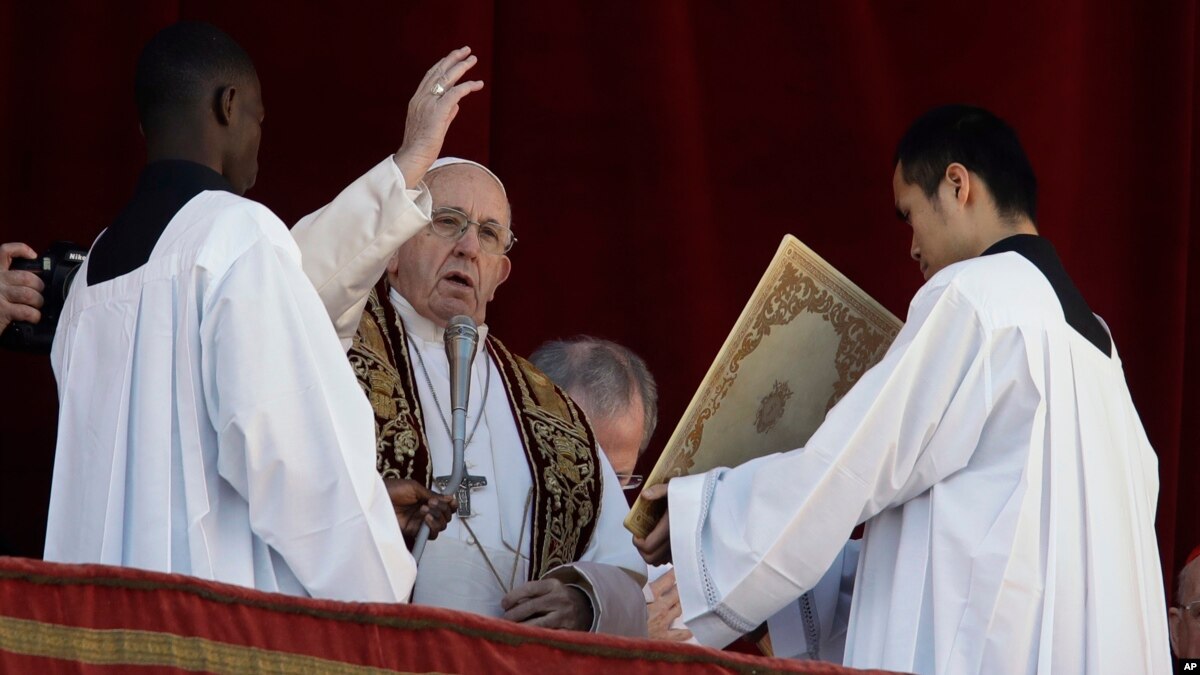
Pope Francis used his Christmas message Tuesday to appeal for peace in conflict zones such as Syria and Yemen, whose populations face some of the world's worst humanitarian crises.
"My wish for a happy Christmas is a wish for fraternity. Fraternity among individuals of every nation and culture. Fraternity among people with different ideas... Fraternity among persons of different religions," he said in his traditional "Urbi and Orbi" (To the City and to the World) address in Saint Peter's Square.
The pontiff said he hoped a truce in conflict-ravaged Yemen would end a devastating war which has killed around 10,000 people since 2015 and pushed 14 million Yemenis to the brink of famine.
"My thoughts turn to Yemen, in the hope that the truce brokered by the international community may finally bring relief to all those children and people exhausted by war and famine," he said.
The pope also evoked the war in Syria, from where U.S. President Donald Trump has decided to pull out some 2,000 troops in a controversial decision, arguing that the Islamic State has been defeated.
"May the international community work decisively for a political solution... so that the Syrian people, especially all those who were forced to leave their own lands and seek refuge elsewhere, can return to live in peace in their own country," he said.
He also said he hoped for renewed peace talks between the Israelis and Palestinians "that can put an end to a conflict that for over 70 years has rent the land chosen by the Lord to show his face of love."
Attack on Libyan Foreign Ministry Kills 3
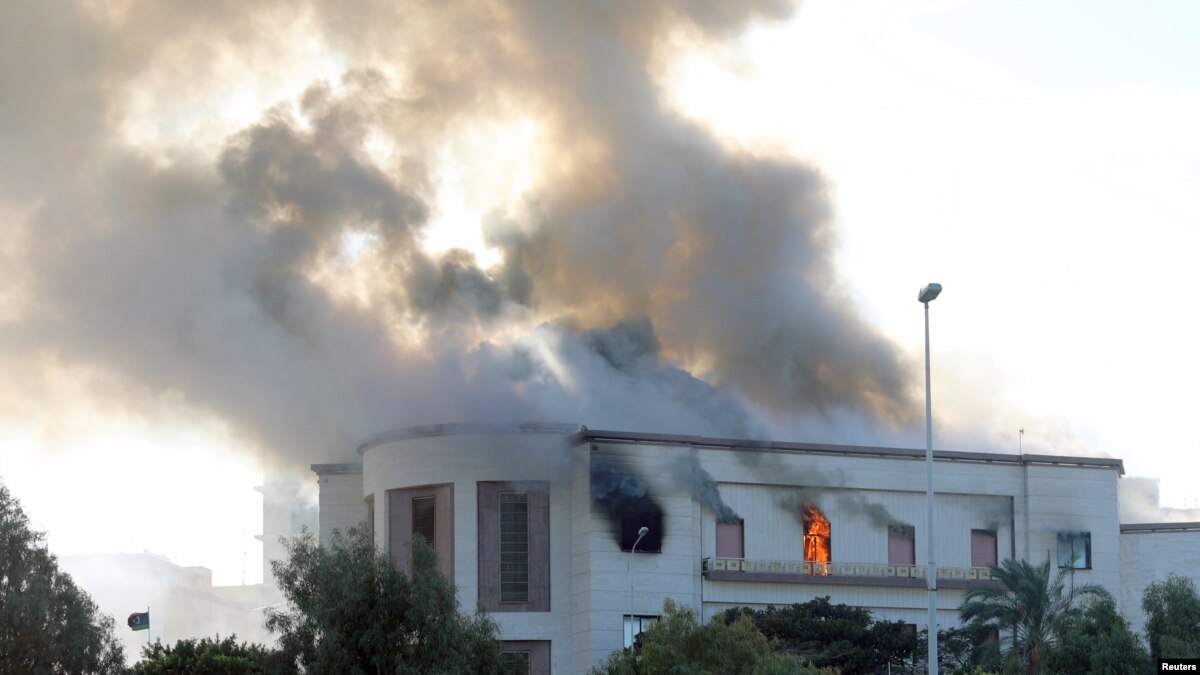
Security officials in Libya say assailants targeted the country's foreign ministry in Tripoli on Tuesday, killing at least three people.
The attack involved a suicide bomber and left plumes of smoke rising from the area.
There was no immediate claim of responsibility.
Libya has dealt with political instability since longtime dictator Moammar Gadhafi was toppled and killed in 2011.
In his place, there have been rival governments and military factions in Tripoli and in the eastern part of Libya vying for control of the country's oil wealth, while Islamic State militants have also found space to operate.
The United Nations has worked with various parties in Libya on a reconciliation process with a goal of establishing a unified government, ensuring security and rule of law, and fairly distributing natural resources.
In addition, U.N. officials have warned that the ongoing lawlessness in Libya provides fertile ground for atrocities and illicit activities to thrive. They say widespread impunity in the country makes migrants and refugees vulnerable for exploitation and extortion by human traffickers and criminal smuggling networks.
Monday, December 24, 2018
Scandals Brewing, Netanyahu Calls Early Election for April
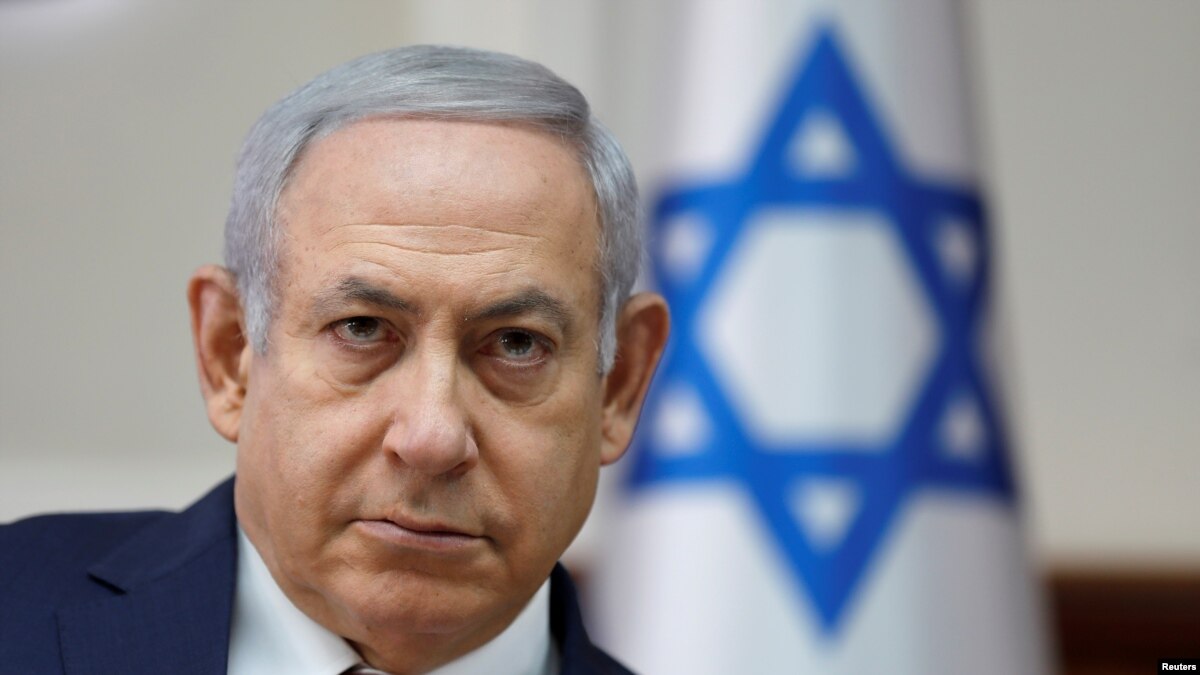
Prime Minister Benjamin Netanyahu on Monday called early elections for April, setting the stage for a three-month campaign clouded by a series of corruption investigations against the long-serving Israeli leader.
Riding high in the polls, Netanyahu appears all but certain to win a fourth consecutive term and a place in history as the country’s longest-serving prime minister. Those bright prospects, however, could be derailed by a looming decision by the country’s attorney general on whether to file charges against Netanyahu.
Netanyahu, facing the possibility of bribery and breach of trust charges in three different cases, made scant mention of these investigations at a gathering of his Likud Party as he announced plans for what is expected to be an April 9 vote.
Appearing loose and confident, he listed his government’s accomplishments in office and said he hoped his current religious, nationalistic coalition would be the “core” of Israel’s next government as well.
“We will ask the voters for a clear mandate to continue leading the state of Israel our way,” he said to applause from party members.
Netanyahu, who also served a term in the late 1990s, has been prime minister for the past decade.
His supporters point to a humming, high-tech economy, his handling of security issues, particularly countering the threat of Iranian influence in the region, and his gains on the diplomatic stage, including a close alliance with President Donald Trump that has paid important dividends.
Trump’s recognition of Jerusalem as Israel’s capital and his withdrawal from the international nuclear deal were both welcomed by Netanyahu. The Israeli leader also has quietly forged ties with Sunni Arab states, further sidelining the Palestinians, who have severed ties with the U.S. because they believe Trump is biased against them.
The White House still has not released a long-awaited peace plan, and Monday’s announcement could further delay its release.
But critics say these gains have come at a deep price to Israel’s democratic ideals. Netanyahu’s hard-line government has promoted a series of laws that critics say are aimed at muzzling liberal critics and sidelining the minority Arab population. They point to wide gaps between rich and poor and high cost of living, and say that by neglecting the Palestinian issue and continuing to build settlements in the West Bank, the country is on the path to becoming an apartheid-like binational state.
Former Prime Minister Ehud Barak called the election “the most fateful” since the assassination of then-Prime Minister Yitzhak Rabin in 1995.
“If we all act properly, on April 10 we will part with Netanyahu,” he said on Hahadashot TV. “The state of Israel will get on a different path instead of this nationalist, racist, dark vision.”
Barak called for the country’s dovish and centrist parties to band together in a unified “bloc” in a bid to topple Likud.
Yair Lapid, leader of the centrist Yesh Atid party, said the election was a battle for the “soul of the country.”
For now, there does not appear to be anyone with the popularity or gravitas to topple Netanyahu.
One wild card is Benny Gantz, a popular former military chief who is flirting with the idea of entering politics. Opposition parties have been aggressively courting Gantz. But for now, he has not committed to joining any party.
Instead, the biggest threat appears to be posed by Attorney General Avichai Mandelblit, who must soon decide on whether to indict the prime minister.
Earlier this month, police recommended that Netanyahu be charged with bribery for promoting regulatory changes worth hundreds of millions of dollars to the country’s main telecom company Bezeq. In exchange, they believe Netanyahu used his connections with Bezeq’s controlling shareholder to receive positive press coverage on the company’s popular news site.
Police have also recommended indicting Netanyahu on corruption charges in two other cases. One involves accepting gifts from billionaire friends, and the second revolves around alleged offers of advantageous legislation for a major newspaper in return for favorable press coverage.
Netanyahu has denied any wrongdoing and said he is the victim of a media-fueled witch hunt. At Monday’s Likud meeting, Netanyahu brushed off a reporter’s question and said he expected the investigations to lead nowhere.
Mandelblit has not said when he expects to make a decision. The Justice Ministry announced Monday that deliberations were continuing and were “not dependent on political events.”
Israeli law is unclear about whether a sitting prime minister must resign if charged with a crime, and Netanyahu has hinted that he will remain in office to fight any indictment.
But criminal charges, and the distraction of a protracted legal battle, could fuel calls for him to step aside.
Finance Minister Moshe Kahlan, a key ally, said Monday that a prime minister “cannot serve” if he is indicted following a required hearing.
Reuven Hazan, a political scientist at Israel’s Hebrew University, said the campaign would be dominated by “a discussion of whether Netanyahu should stay after, if he is prosecuted.”
He said Netanyahu had settled on the April election, roughly seven months ahead of schedule, in part to “pre-empt” an indictment. The thinking is that it would be politically difficult for Mandelblit to indict, and potentially topple, a popular, newly re-elected prime minister.
“He wants to turn around to the attorney general and say ‘before you decide to prosecute me pay attention. The people of Israel have re-elected me for a fourth time,’” Hazan explained.
An electoral victory would send a message that “you cannot overturn the results of a democratic election,” he said.
Netanyahu’s coalition has been roiled by internal divisions for months. Avigdor Lieberman, leader of a small, ultranationalist party, resigned as defense minister last month to protest what he perceived to be the government’s weak response to rocket attacks from Hamas-ruled Gaza.
That left Netanyahu with a fragile majority of just 61 seats in the 120-seat parliament.
But a new bill extending the military draft to Jewish ultra-Orthodox men appeared to be the final trigger for the government’s downfall.
Ultra-Orthodox parties consider conscription a taboo. As a deadline for the legislation loomed, his religious coalition partners were demanding the legislation be weakened.
Earlier Monday, Lapid, a harsh critic of the religious parties, said he was rescinding his support for the draft bill, saying the planned compromise essentially rewarded draft dodgers.
As a result, Netanyahu convened his fellow coalition faction leaders and the decision was made to dissolve parliament and go to elections.
Read More Scandals Brewing, Netanyahu Calls Early Election for April : http://bit.ly/2GD6a7RLand Mines Will Be Hidden Killer in Yemen Decades After War
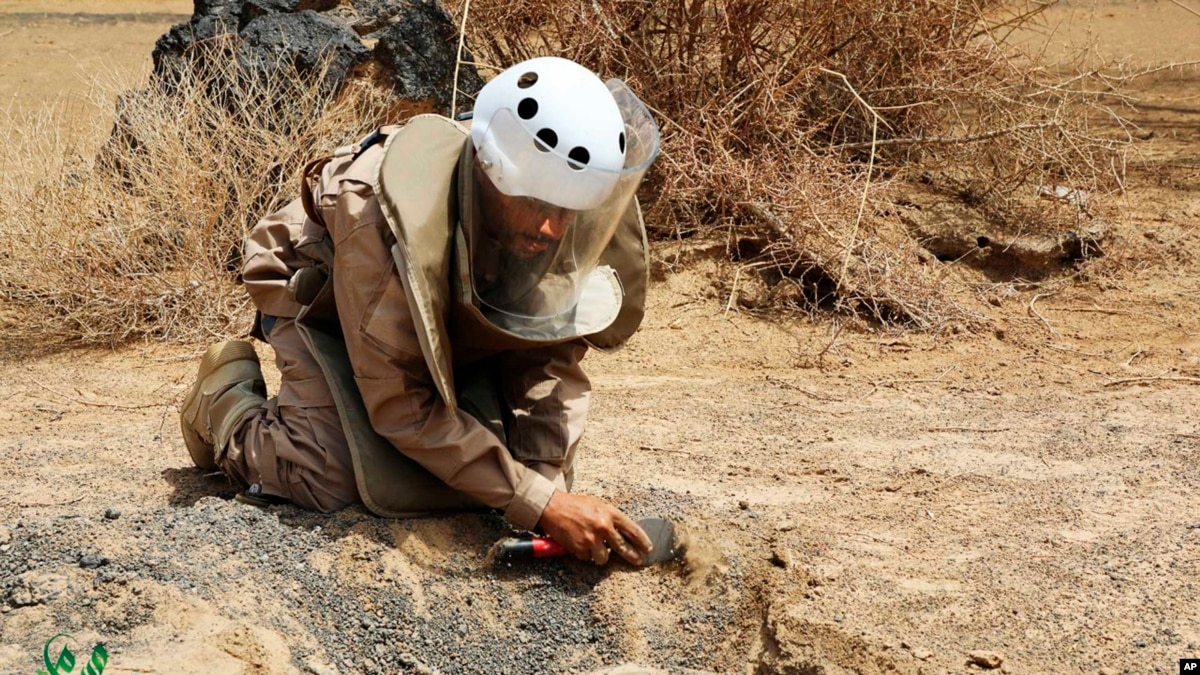
They lurk under shifting desert sands, amid the debris of urban roadsides and inside abandoned schools, some set to go off at the lightest touch.
Land mines scattered by Yemen’s Houthi rebels are largely unmapped and will remain a threat even if the latest push for peace succeeds in halting the conflict, those involved in their eradication say.
While the Houthis’ use of Scud and other retrofitted ballistic missiles has drawn attention for striking deep inside Saudi Arabia, their widespread use of mines represents a risk for generations to come in the Arab world’s poorest country.
“Mines today exist in every single area of Yemen,” Ousama al-Gosaibi, the program manager for the Saudi-funded Masam demining project, told The Associated Press during a trip to the southern city of Aden organized by the Saudi military. “It’s not being used as a defensive (or) offensive mechanism. It’s being used to terrorize the local population across Yemen.”
A Houthi official acknowledged the rebels widely use mines, but said Saudi-led airstrikes have left behind ordinance that is just as deadly.
Yemen’s war pits the Iran-aligned Houthis against the internationally recognized government, which is backed by a coalition led by Saudi Arabia and supported on the ground by the United Arab Emirates.
More than 60,000 people have been killed in the war since 2016, according to the U.S.-based Armed Conflict Location & Event Data Project, or ACLED, which tracks the conflict. The fighting has displaced 2 million, spawned a cholera epidemic and pushed the country to the brink of famine. Millions wake up hungry each day, not knowing from where their next meal will come. Many civilian deaths in the war have been blamed on Saudi-led airstrikes, which have hit markets, health facilities and weddings.
Among the dangers facing combatants and civilians alike are land mines. The Houthis looted government armories when they captured much of northern Yemen, including vast stockpiles of anti-tank mines. Anti-personnel mines also litter the country, despite the government joining a 1997 international convention banning their use.
A U.N. panel of experts said in 2016 that the Houthis had used land mines in their retreat from the southern city of Aden. Since 2016, land mines and other explosives planted by the Houthis have killed at least 222 civilians and wounded others in 114 incidents, according to ACLED.
“Due to the difficulty of obtaining accurate estimates, these figures are likely to make up a fraction of all mine detonations involving civilians in Yemen,” ACLED said.
Making things worse is the fact that a third of all health facilities in Yemen are closed, said Nasser Baoum, the government’s health minister.
“Mines have caused a huge problem,” Baoum told the AP. “It’s OK for an army person to be injured during battle or to be hit by a mine, but for a child to be hit while she’s in the field or on the way to fetch water, that’s a tragedy.”
Al-Gosaibi accused the Houthis of reconfiguring anti-tank mines that previously needed over 100 kilograms (220 pounds) of pressure to detonate so that they require less than 10 kilograms (22 pounds) — meaning a child could trigger the explosive.
Yahia al-Houthi, the former director of the Yemen Executive Mine Action Center, a Houthi-controlled de-mining center, acknowledged the rebels use anti-tank mines but denied tampering with them to target individuals. He also claimed the Houthis never used anti-personnel mines, despite widespread evidence to the contrary.
Brig. Gen. Yahia al-Sarie, a Houthi officer, said the rebels only use land mines on the battlefield and not in civilian areas. “This is a war, so what do you expect us to do? Receive the other side with flowers?”
He said the rebels had mapped the mines and would be able to remove them “in no time” once the fighting ends.
Al-Gosaibi accuses the Houthis of using Iran-supplied technology like infrared sensors and of adopting Iranian tactics like hiding bombs inside fake rocks. A report in March by the group Conflict Armament Research said roadside bombs disguised as rocks in Yemen bore similarities to others used by the Iran-backed Hezbollah in southern Lebanon and by Iran-linked insurgents in Iraq and Bahrain.
Mines planted by the Houthis, some resembling a model previously displayed in Iran, also have been found in the Red Sea, according to a 2018 U.N. experts report. Those mines “represent a hazard for commercial shipping and sea lines of communication that could remain for as long as six to 10 years,” the report warned.
The Saudi-led coalition, Western countries and U.N. experts accuse Iran of supplying weaponry from assault rifles to ballistic missiles to the Houthis. Iran supports the Houthis but denies arming then, and Iran’s mission to the U.N. dismissed the latest allegations of “Iranian ghost weapons.”
“Yemen has long been awash with a wide range of weapons — including ballistic missiles — and Yemenis do not need Iranian weapons to conduct war,” said Alireza Miryousefi, a spokesman for Iran’s mission.
Unexploded cluster munitions and bombs dropped by coalition aircraft — including some manufactured in the United States — also litter Yemen, according to the U.N. The coalition has faced widespread international criticism over indiscriminate airstrikes that have killed large numbers of civilians.
Al-Houthi said their forces had removed 500,000 missiles and cluster munitions from Saud-led strikes.
Saudi Arabia has alleged as many as 1 million mines may have been laid by the Houthis. Al-Gosaibi described Yemen as being the most-mined nation since World War II, based on his group’s estimate of the mines laid by the rebels. Saudi officials have released pictures showing fields of deactivated land mines.
International groups dealing with land mines have been hesitant to estimate the scale of the crisis, given the limited information they have. Yemen is also littered with mines from previous conflicts.
“It’s going to take years,” al-Gosaibi said. “You cannot rebuild Yemen without addressing the mine issue. It’s us on the ground first before rebuilding starts.”
Read More Land Mines Will Be Hidden Killer in Yemen Decades After War : http://bit.ly/2PX83M9Search
Featured Post
Tornado Watch for parts of Middle Georgia - wgxa.tv
[unable to retrieve full-text content] Tornado Watch for parts of Middle Georgia wgxa.tv "middle" - Google News December 30...
Postingan Populer
-
[unable to retrieve full-text content] Monroe County Middle School goes virtual next week due to COVID-19 exposure wgxa.tv "middl...
-
Members of the Meany Middle School PTSA are calling on Mayor Jenny Durkan , Seattle Parks , and City of Seattle officials to give a group...
-
The global demand for palm oil is driving the fires in Indonesia Quartz Palm oil is in your infant formula, chips, and shampoo. Develope...